Ibrahim Mounir
Former acting general guide (deceased)
The Muslim Brotherhood is a transnational Sunni Islamist movement that seeks to implement sharia (Islamic law) under a global caliphate. Founded in Egypt in 1928, the Brotherhood is the country’s oldest Islamist organization and has branches throughout the world.
January 2026: On January 13, the U.S. Treasury and State departments designate the Lebanese, Jordanian, and Egyptian chapters of the Muslim Brotherhood as terrorist organizations after declaring that they pose a risk to the United States and American interests. The State Department designates the Lebanese Brotherhood and its leader, Muhammad Fawzi Taqqosh, as Specially Designated Foreign Terrorists (SDGTs). The Department of the Treasury designates the Jordanian and Egyptian chapters of the Brotherhood as SDGTs for providing material support to Hamas. On January 15, Argentina designates the Brotherhood’s Lebanese, Jordanian, and Egyptian chapters as terrorist organizations. An Argentine government statement says that the designations are based on official reports documenting transnational illicit activities, including acts of terrorism, public calls for violent extremism, links to other terrorist organizations, and their potential impact on Argentina.“Terrorist Designations of Muslim Brotherhood Chapters,” U.S. Department of State, January 13, 2026, https://www.state.gov/releases/office-of-the-spokesperson/2026/01/terrorist-designations-of-muslim-brotherhood-chapters/; “Argentina lists Muslim Brotherhood branches as terrorist entities,” United Press International, January 15, 2026, https://www.upi.com/Top_News/World-News/2026/01/15/latam-argentina-muslim-brotherhood-terrorist-groups/1081768500737/.
The Muslim Brotherhood is a transnational Sunni Islamist movement that seeks to implement sharia (Islamic law) under a global caliphate. Founded in Egypt in 1928, the Brotherhood is that country’s oldest Islamist organization and has branches throughout the world. While these branches operate under a variety of names and use a variety of social, political, and occasionally violent methods, they share a commitment to the overarching goal of establishing rule according to sharia. The most notable and lethal Brotherhood offshoot is Hamas, the Palestinian terror group operating out of the Gaza Strip. Some analysts also argue that the Brotherhood has served as the ideological forerunner of modern violent Islamist groups such as al-Qaeda and ISIS. The group has been labeled a terrorist organization by the governments of Bahrain,“Bahrain backs Saudi Arabia, UAE, Foreign Minister says,” Bahrain News Agency, March 21, 2014, http://www.bna.bh/portal/en/news/609752; Habib Toumi, “Bahrain Confirms Full Support to Saudi Arabia, UAE,” Gulf News (Dubai), March 22, 2014, http://gulfnews.com/news/gulf/bahrain/bahrain-confirms-full-support-to-saudi-arabia-uae-1.1307223. Egypt,Kareem Fahim, “Egypt, Dealing a Blow to the Muslim Brotherhood, Deems It a Terrorist Group,” New York Times, December 25, 2013, http://www.nytimes.com/2013/12/26/world/middleeast/egypt-calls-muslim-brotherhood-a-terrorist-group.html. Russia,Gabriela Baczynska, “Russia may ease Muslim Brotherhood ban to boost Egypt ties,” Reuters, December 28, 2012, http://www.reuters.com/article/2012/12/18/us-egypt-politics-russia-idUSBRE8BH0VD20121218;
“Russia names ‘terrorist’ groups,” BBC News, July 28, 2006, http://news.bbc.co.uk/2/hi/europe/5223458.stm. Saudi Arabia,Rania el Gamal, “Saudi Arabia designates Muslim Brotherhood terrorist group,” Reuters, March 7, 2014, http://www.reuters.com/article/2014/03/07/us-saudi-security-idUSBREA260SM20140307. Syria,“The Muslim Brotherhood in Syria,” Carnegie Endowment for International Peace, accessed May 14, 2015, http://carnegieendowment.org/syriaincrisis/?fa=48370. and the United Arab Emirates.Adam Schreck, “UAE backs Saudis with Muslim Brotherhood blacklist,” Associated Press, March 9, 2014, http://bigstory.ap.org/article/uae-backs-saudis-muslim-brotherhood-blacklist.
Founded in 1928 by schoolteacher Hassan al-Banna in Ismailia, Egypt, the Brotherhood began as a pan-Islamist religious and social movement, building popular support through dawa (proselytization), political activism, and social welfare. Alongside its political and social activities, the Brotherhood operated an underground violent group—the “secret apparatus”—dedicated to the eradication of British rule in Egypt and of the Jewish presence in Palestine.
The Egyptian Brotherhood’s growth spurred the formation of affiliates in nearby countries such as Syria and Jordan. Dissemination of written works by Sayyid Qutb, one of the leading Brotherhood ideologues in the 1950s and 1960s, prompted further Brotherhood growth across the Arabian Peninsula, Palestinian territories, and Africa. As Zachary Laub of the Council on Foreign Relations writes, Qutb’s writings “provided the intellectual and theological underpinnings for many militant Sunni Islamist groups, including al-Qaeda and Hamas.”Zachary Laub, “Egypt’s Muslim Brotherhood,” Council on Foreign Relations, last modified January 15, 2014, http://www.cfr.org/egypt/egypts-muslim-brotherhood/p23991. Indeed, Qutb’s writings helped inform the Islamist ideology known as Qutbism, which advocates violent jihad—and the killing of secular Muslims—in order to implement sharia.
The Brotherhood has survived in Egypt despite several waves of repression by the Egyptian government. Repressive measures have included legal prohibition of the group and imprisonment and execution of large numbers of Brotherhood members, including Qutb, whom the Egyptian government executed in 1966 for his part in the conspiracy to assassinate then-President Gamal Abdel Nasser. The Egyptian Brotherhood also benefitted from intermittent periods of toleration by the government, during which the group continued its social, religious, economic, and political activities, building up organizational strength unmatched by any other Egyptian opposition group. In addition, the group’s unofficial ideologue, the now-deceased Egyptian cleric Yusuf al-Qaradawi, was unrestrained in delivering sermons and issuing militant fatwas (religious decrees) from his pulpit in Qatar.
As the Arab Spring came to a head in 2011, the Brotherhood’s resilience and robust infrastructure left it well placed to capitalize on shifting political landscapes in Egypt and elsewhere in the Middle East and North Africa. Several Brotherhood chapters formed political parties and performed well in their respective countries’ elections, particularly in Egypt with the Freedom and Justice Party, which ran senior Brotherhood official Mohammed Morsi as its candidate for president.“Muslim Brotherhood-backed candidate Morsi wins Egyptian presidential election,” Fox News, June 24, 2012, http://www.foxnews.com/world/2012/06/24/egypt-braces-for-announcement-president/. In Tunisia, Ennahdha won the first elections after former President Zine El Abidine Ben Ali’s ouster.“Ennahda wins Tunisia's elections,” Al Jazeera, October 28, 2011, http://www.aljazeera.com/news/africa/2011/10/2011102721287933474.html.
Morsi served as president of Egypt between June 2012 and July 2013, though his government alienated much of the population due to perceptions that it governed poorly and overreached—including through the group’s attempts to rush through changes to the Egyptian constitution. In July 2013, after months of mass protests against the Brotherhood-led government, the Egyptian military overthrew Morsi and seized power, calling for new presidential and parliamentary elections and arresting Morsi and hundreds of Brotherhood officials and members on various charges. Egypt’s military-run government, led by President Abdel Fattah el-Sisi, has sought to uproot the Brotherhood entirely.Louisa Loveluck, “Sisi says Muslim Brotherhood will not exist under his reign,” Guardian (London), May 5, 2014, http://www.theguardian.com/world/2014/may/06/abdel-fatah-al-sisi-muslim-brotherhood-egypt.
After Morsi’s ouster, an ideological and strategic rift widened between the Egyptian Brotherhood’s older and younger generations. While the older generation—known as the “old guard”—reiterates its platform of non-violence and hopes that the military regime will collapse due to economic decline or an internal coup, for example, the younger generation has adopted increasingly jihadist rhetoric and resorts to low-level violence in pursuit of the overthrow of the Sisi regime.Samuel Tadros, “The Brotherhood Divided,” Hudson Institute, August 20, 2015, http://www.hudson.org/research/11530-the-brotherhood-divided. In August 2020, Egyptian authorities arrested the Brotherhood’s acting supreme guide, Mahmoud Ezzat.“Acting leader of Egypt's Muslim Brotherhood arrested in Cairo,” Reuters, August 28, 2020, https://www.reuters.com/article/us-egypt-politics/acting-leader-of-egypts-muslim-brotherhood-arrested-in-cairo-idUSKBN25O1C3. Ezzat had been the group’s acting supreme guide since the 2013 arrest of Supreme Guide Mohammed Badie.“Egypt’s Brotherhood Names New Acting Supreme Guide,” Ahram Online, August 20, 2013, http://english.ahram.org.eg/NewsContent/1/0/79499/Egypt/0/Egypts-Brotherhood-names-new-acting-supreme-guide.aspx. Following Ezzat’s arrest, the Brotherhood named Ibrahim Mounir its news acting supreme guide and reorganized its leadership structure.“Egypt Muslim Brotherhood align with new acting supreme guide,” Middle East Monitor, September 17, 2020, https://www.middleeastmonitor.com/20200917-egypt-muslim-brotherhood-align-with-new-acting-supreme-guide/. Following Mounir’s death on November 4, 2022, the Brotherhood’s Shura Council named Mahmoud Hussein as its acting supreme guide on November 16, 2022.“Acting leader of Egypt's Muslim Brotherhood dies at 85 – statement,” Reuters, November 4, 2022, https://www.reuters.com/world/middle-east/acting-leader-egypts-muslim-brotherhood-dies-85-statement-2022-11-04/; Ikhwanweb, Twitter post, November 16, 2022, 9:51 a.m., https://twitter.com/Ikhwanweb/status/1592893075382304769.
In addition to a crackdown on the Brotherhood in Egypt, Jordan also outlawed the Brotherhood in April 2025 after a violent Brotherhood plot to target locations inside the country with rockets and drones was uncovered. In addition to the ban, Jordanian authorities raided Brotherhood offices. Suleiman Al-Khalidi, “Jordan Outlaws Muslim Brotherhood, Confiscates Assets and Offices.” Reuters, April 23, 2025. https://www.reuters.com/world/middle-east/jordan-outlaws-muslim-brotherhood-group-confiscates-its-assets-offices-2025-04-23/. The ban came after Jordanian officials and observers accused the Muslim Brotherhood and its offshoot Hamas of inciting pro-Hamas demonstrations in April of 2024.Dale Gavlak, “Officials, Observers Warn Muslim Brotherhood is Inciting Pro-Hamas Demonstrations,” Voice of America, April 9, 2024, https://www.voanews.com/a/officials-observers-warn-muslim-brotherhood-is-inciting-pro-hamas-demonstrations/7562877.html. Furthermore, in May 2024, Jordanian security forces shut down the Brotherhood-affiliated TV channel Al-Yarmouk. The security forces stormed the channel’s offices, seized equipment, and barred employees from entering the building. The public prosecutor ordered the closure of the network “due to its unauthorized activity and broadcasting from Jordan without obtaining official governmental approvals.”“Jordanian Authorities Shut Down Muslim Brotherhood-Linked TV Station,” Middle East Eye, May 11, 2024, https://www.middleeasteye.net/news/jordanian-authorities-shut-down-muslim-brotherhood-affiliated-tv-station. The series of multiple actions taken by the Jordanian government after years of legal operations of the Brotherhood within the country, resulted in political analyst Mohammed Khair Rawashdeh calling the ban in 2025 “the final divorce” between the Brotherhood and Jordan.Suleiman Al-Khalidi, “Jordan Outlaws Muslim Brotherhood, Confiscates Assets and Offices.” Reuters, April 23, 2025. https://www.reuters.com/world/middle-east/jordan-outlaws-muslim-brotherhood-group-confiscates-its-assets-offices-2025-04-23/.
The U.S. government has examined a possible designation of the Brotherhood since President Donald Trump suggested it in early 2017. In a private meeting on April 9, 2019, Egyptian President Abdel Fattah el-Sisi reportedly urged Trump to join Egypt in branding the movement as a terrorist organization.Charlie Savage, Eric Schmitt and Maggie Haberman, “Trump Pushes to Designate Muslim Brotherhood a Terrorist Group,” New York Times, April 30, 2019, https://www.nytimes.com/2019/04/30/us/politics/trump-muslim-brotherhood.html?module=inline.; Mark Landler, “Egypt’s President, Hoping to Be Allowed to Stay in Office Until 2034, Basks in Trump’s Embrace,” New York Times, April 9, 2019, https://www.nytimes.com/2019/04/09/us/politics/trump-abdel-fattah-el-sisi.html?module=inline. Following Sisi’s visit, the White House directed national security and diplomatic officials to investigate potential sanctions against the group. However, critics of the designation claim that the Brotherhood does not meet the legal criteria for the designation and that such a designation could complicate relations with countries where Brotherhood-linked groups have a role in politics and government.Peter Baker, “White House Weighs Terrorist Designation for Muslim Brotherhood,” New York Times, February 7, 2017, https://www.nytimes.com/2017/02/07/world/middleeast/muslim-brotherhood-terrorism-trump.html.; David D. Kirkpatrick, “Is the Muslim Brotherhood a Terrorist Group?,” New York Times, April 30, 2019, https://www.nytimes.com/2019/04/30/world/middleeast/is-the-muslim-brotherhood-terrorist.html.; David D. Kirkpatrick, “Trump Considers Them Terrorists, but Some Are Allies,” New York Times, May 10, 2019, https://www.nytimes.com/2019/05/10/world/middleeast/trump-muslim-brotherhood.html.; Deb Reichmann, “US weighs designating Muslim Brotherhood a terrorist group,” Associated Press, April 30, 2019, https://www.apnews.com/9b6ee104cb0f4e6792f593a5d4674f6a; Rebecca Ballhaus, Courtney McBride, and Jared Malsin, “Trump Administration Seeks to Designate Muslim Brotherhood as Terrorist Organization,” Wall Street Journal, April 30, 2019, https://www.wsj.com/articles/trump-administration-seeks-to-designate-muslim-brotherhood-as-terrorist-organization-11556631257. The Muslim Brotherhood remains undesignated as a terrorist organization in the United States.
The Muslim Brotherhood was founded in 1928 to revive the caliphate, following the abolition of the Ottoman Empire by the Turkish Republic four years earlier.Brian R. Farmer, Understanding Radical Islam: Medieval Ideology in the Twenty-First Century (New York: Peter Lang, 2007), 83; “Profile: Egypt's Muslim Brotherhood,” Al Jazeera, February 6, 2011, http://www.aljazeera.com/indepth/2011/02/201126101349142168.html;
Jay Winter, “The birth of the Muslim Brotherhood,” Los Angeles Times, March 14, 2011, http://articles.latimes.com/2011/mar/14/opinion/la-oe-winter-muslim-brotherhood-20110314;
Tareq Abu al-Ainain, “Egypt’s Brotherhood Strives for ‘Caliphate’ at Expense of Security,” Al-Monitor, June 2, 2013, http://www.al-monitor.com/pulse/security/2013/06/egypt-muslim-brotherhood-caliphate-national-security.html#;
“The abolition of the Caliphate,” Economist, March 18, 1924, http://www.economist.com/node/11829711. Brotherhood founder Hassan al-Banna rejected the phenomenon of Western-style nationalism and espoused an ideology of “pan-Islamic nationalism” in the hopes of bringing back the caliphate.Hassan al-Banna and his political thought of Islamic Brotherhood,” Ikhwanweb: The Muslim Brotherhood’s Official English web site, last modified May 13, 2008, http://www.ikhwanweb.com/article.php?id=17065.
“Islam does not recognize geographical boundaries, nor does it acknowledge racial and blood differences, considering all Muslims as one Umma (global community of Muslims). The Muslim Brethren (Muslim Brotherhood)…. believe that the caliphate is a symbol of Islamic Union and an indication of the bonds between the nations of Islam. They see the caliphate and its re-establishment as a top priority...”“HASAN AL-BANNA AND HIS POLITICAL THOUGHT OF ISLAMIC BROTHERHOOD,” Ikhwanweb: The Muslim Brotherhood’s Official English web site, May 13, 2008, http://www.ikhwanweb.com/article.php?id=17065. –Hassan al-Banna
Banna was concerned with what he considered the greatest threat to Islam: the rise of secularism and Western culture in Muslim societies. To counter this danger, Banna began dawa (proselytization) in schools, mosques, and coffee houses, spreading his pan-Islamist ideology and emphasizing the need to return to sharia.Hassan al-Banna and his political thought of Islamic Brotherhood,” Ikhwanweb: The Muslim Brotherhood’s Official English web site, last modified May 13, 2008, http://www.ikhwanweb.com/article.php?id=17065.
Banna also subscribed to an Islamic version of irredentism—believing that lands once ruled under Muslim law cannot be transferred to non-Muslim rule and should be returned to Muslim rule.Hasan al-Banna, Five Tracts of Hasan Al-Banna: A Selection from the Majmu at Rasail al-Imam al-Shahid Hasan al-Banna, translated and annotated by Charles Wendell (Berkeley: University of California Press, 1978), p. 147. This belief has informed the Brotherhood’s positions on Europe and countries that were previously governed under Islamic rule. This belief forms the basis for the Brotherhood’s attitudes toward Israel, which the Brotherhood believes is built on the Islamic land of Palestine at the core of what used to be the Islamic empire. Brotherhood thinkers such as Yusuf al-Qaradawi have reinforced an Islamic requirement to recapture such lands and return them to Islamic governance.Damon L. Perry, “The Islamic Movement in Britain,” International Centre for the Study of Radicalisation and Political Violence, 2020, p. 24-25, https://icsr.info/wp-content/uploads/2020/09/ICSR-Report-The-Islamic-Movement-in-Britain.pdf.
Branches of the Brotherhood have adopted various—sometimes opposing—strategies to attain this goal. The modern Brotherhood maintains it is a non-violent organization. Former Secretary-General Mahmoud Hussein insisted in a 2017 interview that “the methodology of the group is a peaceful methodology and it (the Brotherhood) does not practice violence.”Mahmoud Hussein, “Disorienting and Attrition: MB Secretary General Mahmoud Hussein,” Watan TV, January 16, 2017, https://www.youtube.com/watch?v=PAruv43OrPU. Similarly, Qaradawi has declared that Islam will conquer the West through “preaching and ideology” rather than through violence.“Leading Sunni Sheikh Yousef al-Qaradhawi and Other Sheikhs Herald the Coming Conquest of Rome,” Middle East Media and Research Institute, December 6, 2002, https://www.memri.org/reports/leading-sunni-sheikh-yousef-al-qaradhawi-and-other-sheikhs-herald-coming-conquest-rome.
Nonetheless, the Brotherhood has historically employed violence while some of the Brotherhood’s chief ideologues have sanctioned its use. In 1940, the Egyptian Brotherhood launched Nizam al-Khass (“secret apparatus”), which carried out numerous assassinations and bombings that concluded in the 1948 murder of Egyptian Prime Minister Mahmoud an-Nuqrashi Pasha.Omar Ashour, “Myths and realities: The Muslim Brothers and armed activism,” Al Jazeera, August 12, 2014, http://www.aljazeera.com/indepth/opinion/2014/08/myths-realities-muslim-brothers--20148129319751298.html; “Profile: Egypt's Muslim Brotherhood,” Al Jazeera, February 6, 2011, http://www.aljazeera.com/indepth/2011/02/201126101349142168.html; “Egyptian Muslim Brotherhood Official Claims Group Has Revived Paramilitary Wing,” The Global Muslim Brotherhood Daily Watch, August 21, 2008, http://www.globalmbwatch.com/2008/08/21/egyptian-muslim-brotherhood-official-claims-group-has-revived-its-paramilitary-wing/. Egyptian authorities have directly connected the Brotherhood to violence in Egypt since the 2013 fall of the Brotherhood-led government there.“Egypt: Muslim Brotherhood branded ‘terrorist group’ after bombing,” Telegraph (London), December 24, 2013, https://www.telegraph.co.uk/news/worldnews/africaandindianocean/egypt/10536505/Egypt-Muslim-Brotherhood-branded-terrorist-group-after-bombing.html. The Brotherhood’s Palestinian offshoot, Hamas, has justified the use of violence in pursuit of its goal of “liberating” Palestine, carrying out suicide bombings and other such attacks.Damon L. Perry, “The Islamic Movement in Britain,” International Centre for the Study of Radicalisation and Political Violence, 2020, p. 24-25, https://icsr.info/wp-content/uploads/2020/09/ICSR-Report-The-Islamic-Movement-in-Britain.pdf. Qaradawi, who has otherwise decried the use of violence in achieving the Brotherhood’s goals, has previously endorsed Hamas’s use of suicide bombings and rocket attacks against Israel.“Top Sunni Muslim Cleric Al-Qaradawi Does About-Face, Opposes Suicide Bombings,” Jerusalem Post, July 29, 2015, https://www.jpost.com/Middle-East/Top-Sunni-Muslim-cleric-al-Qaradawi-does-about-face-opposes-suicide-bombings-410483. While in power in 2012, Egypt’s Brotherhood-led government maintained close ties with Hamas.Associated Press, “Egypt Court: Muslim Brotherhood, Hamas, And Hezbollah Broke President Morsi Out Of Jail in 2011,” Business Insider, June 23, 2013, http://www.businessinsider.com/how-president-morsi-got-out-of-jail-in-2011-2013-6; “Egypt: Mohammed Morsi accused of conspiring with Hamas,” Telegraph (London), July 26, 2013, https://www.telegraph.co.uk/news/worldnews/africaandindianocean/egypt/10205552/Egypt-Mohammed-Morsi-accused-of-conspiring-with-Hamas.html; McClatchy, “Morsi’s ouster a ‘nightmare’ for Hamas rulers in Gaza Strip,” Olympian, July 8, 2013, https://www.theolympian.com/news/nation-world/national/article25318465.html.
In the 1950s and 1960s, the Brotherhood’s most notable theorist, Sayyid Qutb, promoted jihad as an offensive force to be used against secular Arab governments.Sujata Ashwarya Cheema, “Sayyid Qutb's Concept of Jahiliyya as Metaphor for Modern Society,” Islam and Muslim Societies 2, no. 2 (2006), http://www.academia.edu/3222569/Sayyid_Qutbs_Concept_of_Jahiliyya_as_Metaphor_for_Modern_Socie. Qutb argued that Muslim societies living under these governments existed in a state of jahiliyya, similar to Arabia’s pagan existence prior to the divine message of the Islamic prophet Muhammad. According to Qutb, this affliction could only be corrected by the implementation of sharia, brought about by offensive jihad and the killing of secular state officials.Dale C. Eikmeier, “Qutbism: An Ideology of Islamic-Fascism,” Parameters: The US Army War College Quarterly 37, no. 1 (Spring 2007), 89, http://www.dtic.mil/dtic/tr/fulltext/u2/a485995.pdf. Indeed, Qutb helped to re-popularize the Islamic concept of takfir, by which Muslims serving a secular ruler are rendered apostates and thus legitimate targets for execution.Youssef Aboul-Enein, “Learning from Adel Hammouda’s Work on Militant Islamist Movements,” Combatting Terrorism Center, September 15, 2008, https://www.ctc.usma.edu/posts/learning-from-adel-hammouda%E2%80%99s-work-on-militant-islamist-movements;
Lawrence Wright, The Looming Tower, (New York: Random House, 2011), 34-35;
Dale C. Eikmeier, “Qutbsim: An Ideology of Islamic-Facism,” U.S. Army War College 37, no. 1 (2007): 89, http://www.dtic.mil/dtic/tr/fulltext/u2/a485995.pdf.
In the 1990s, the late Mohammad Ma’mun al-Hudaibi—who served as the Brotherhood’s supreme guide between 2002 and 2004—expounded upon the Brotherhood’s ideology in an interview with the Harvard International Review. Hudaibi stated that in a caliphate envisioned by the Brotherhood, daily life would be governed by Islamic teachings as interpreted by Islamic judges, with no need for a state’s rulers to impose man-made or “general laws.”“The Principles of the Muslim Brotherhood,” Ikhwanweb: The Muslim Brotherhood’s Official English web site, http://www.ikhwanweb.com/article.php?id=813.
Hudaibi stressed that the holistic, Islam-centered caliphate was shattered by Western and Christian imperialism, including Britain’s rule over Egypt in the 19th and 20th centuries. While Muslim peoples eventually liberated themselves from Western rule, they were unable to reclaim the Islamic governance under which they had previously lived.“The Principles of the Muslim Brotherhood,” Ikhwanweb: The Muslim Brotherhood’s Official English web site, http://www.ikhwanweb.com/article.php?id=813. Therefore, Hudaibi explained, in order to repair society after its purported deterioration into Western imperialism, “Movements of Islamic revival became active to spread the correct Islamic ideas and to demand the application of the rulings of the Islamic Shari’ah...”“The Principles of the Muslim Brotherhood,” Ikhwanweb: The Muslim Brotherhood’s Official English web site, http://www.ikhwanweb.com/article.php?id=813. Among these movements was the Muslim Brotherhood. Since, according to the Brotherhood, the lack of holistic Islamic governance is the “problem,” the Brotherhood’s longstanding slogan has been that “Islam is the solution.”“A look at Egypt’s Muslim Brotherhood,” Associated Press, November 1, 2013, http://bigstory.ap.org/article/look-egypts-muslim-brotherhood-0;
“Brotherhood decides to drop 'Islam is the solution' for presidential race,” Egypt Independent (Cairo), April 24, 2012, http://www.egyptindependent.com/news/brotherhood-decides-drop-islam-solution-presidential-race;
Jack Shenker and Brian Whitaker, “The Muslim Brotherhood Uncovered,” Guardian (London), February 8, 2011, http://www.theguardian.com/world/2011/feb/08/egypt-muslim-brotherhood-uncovered;
Bryony Jones and Susannah Cullinane, “What is the Muslim Brotherhood,” CNN, July 3, 2013, http://www.cnn.com/2013/07/03/world/africa/egypt-muslim-brotherhood-explainer.
Two Pillars
The Brotherhood has two pillars articulated by Hudaibi and published on the group’s website: 1) “The introduction of the Islamic Shari‘ah as the basis controlling the affairs of state and society” and 2) “Work to achieve unification among the Islamic countries and states, mainly among the Arab states, and liberating them from foreign imperialism.”“The Principles of the Muslim Brotherhood,” Ikhwanweb: The Muslim Brotherhood’s Official English web site, accessed May 29, 2014, http://www.ikhwanweb.com/article.php?id=813.
According to Hudaibi, the Brotherhood seeks to re-establish Islamic governance from the bottom up by building a “popular base that believes in the Islamic system and is aware of its main ideas.”“The Principles of the Muslim Brotherhood,” Ikhwanweb: The Muslim Brotherhood’s Official English web site, accessed May 29, 2014, http://www.ikhwanweb.com/article.php?id=813.
The Brotherhood has built this popular base through grassroots efforts, including not only political organizing and religious indoctrination but also, most notably in Egypt, provision of health care, education, and other social welfare goods and services that governments often fail to deliver satisfactorily. In Egypt and elsewhere, the Brotherhood has used this popular base to obtain increased political representation and power through democratic processes, despite the group’s ultimate political goal of un-democratic, Islamist rule.Abdullah al-Arian, “A State Without a State: The Egyptian Muslim Brotherhood’s Social Welfare Institutions,” Middle East Political Science, September 20, 2014, http://pomeps.org/2014/09/30/a-state-without-a-state-the-egyptian-muslim-brotherhoods-social-welfare-institutions/.
The Brotherhood seeks to implement its vision in stages. Banna promoted the gradualist construction of the Muslim individual, the Muslim family, the Muslim community, and finally the Muslim government, or Islamic State, which Banna believed would bind all Muslims to God.Larbi Sadiki, “Egypt: The triumph of Hassan Al-Banna,” Al Jazeera, July 4, 2012, http://www.aljazeera.com/indepth/opinion/2012/07/20127212233901118.html. Banna stressed that the Muslim Brotherhood was uninterested in revolutionary tactics, and instead operated with a slow and steady approach. Article 4, section 2 of the Brotherhood’s 1945 basic regulations stated, “The Brethren [Brothers] will always prefer gradual advancement and development.”“Hasan al-Banna and his political thought of Islamic brotherhood,” Ikhwanweb, May 13, 2008, http://www.ikhwanweb.com/article.php?id=17065.
According to the Brotherhood’s official English website, Ikhwanweb, Banna would warn the Brotherhood members “who were looking for fast results that they would either have to learn to be patient and persevering or leave the movement.”“Hasan al-Banna and his political thought of Islamic brotherhood,” Ikhwanweb, May 13, 2008, http://www.ikhwanweb.com/article.php?id=17065. Today, the Brotherhood is split between the old guard that champions this strategy, and the younger generation that has voiced and demonstrated its support for a revolutionary approach using violent means.Samuel Tadros, “The Brotherhood Divided,” Hudson Institute, August 20, 2015, http://www.hudson.org/research/11530-the-brotherhood-divided.
The Brotherhood’s International Organization
The Brotherhood’s International Organization is reportedly comprised of the group’s global affiliates, which operate in at least 18 countries, including Egypt.Dr. Nathan Brown, “The Muslim Brotherhood,” Congressional Testimony, Carnegie Endowment, April 13, 2011, 10-11, http://carnegieendowment.org/files/0413_testimony_brown.pdf. Former Brotherhood Deputy Supreme Guide Mohamed Habib told Egyptian newspaper Al-Ahrar in 2008 that global Brotherhood affiliates share “the same ideology, principle, and objectives” as the Egyptian branch, but operate in a “decentraliz[ed]” fashion in order to respond to the unique challenges and contexts that each entity confronts.“Interview with MB Deputy Chairman in Al Ahrar Daily,” Ikhwan Web Homepage,” Ikhwanweb: The Muslim Brotherhood’s Official English web site, June 16, 2008, http://www.ikhwanweb.com/article.php?id=17267. Brotherhood scholars suggest that the International Organization is loose and often ineffective, as domestic circumstances outweigh each affiliate’s loyalty to the larger global apparatus. In addition, there is believed to be little formal coordination between global affiliates.Robert S. Leiken and Steven Brooke, “The Moderate Muslim Brotherhood,” Foreign Affairs, March/April 2007, http://www.foreignaffairs.com/articles/62453/robert-s-leiken-and-steven-brooke/the-moderate-muslim-brotherhood;
Dr. Nathan Brown, “The Muslim Brotherhood,” Congressional Testimony, Carnegie Endowment, April 13, 2011, 10-11, http://carnegieendowment.org/files/0413_testimony_brown.pdf.
The Brotherhood and Brotherhood members have created networks of affiliated organizations around the world. According to a 2021 report by Austria's Documentation Centre for Political Islam, Brotherhood ideologues control these organizations to be part of the European social mainstream. In Europe particularly, these groups receive public funding for which the Brotherhood would otherwise be ineligible based on ideology or geography. According to the report’s authors, the Brotherhood maintains a presence in every European country.Tim Stickings, “Muslim Brotherhood’s influence in Europe laid bare,” National (Abu Dhabi), October 28, 2021, https://www.thenationalnews.com/world/europe/2021/10/28/muslim-brotherhoods-influence-in-europe-laid-bare/. Supporters of the Brotherhood criticize European attempts to limit the Brotherhood and political Islam as damaging Muslim civil society groups.John Esposito and Farid Hafez, “Why is Austria coming after the Muslim Brotherhood?,” Al Jazeera, June 24, 2021, https://www.aljazeera.com/opinions/2021/6/24/why-is-austria-coming-after-the-muslim-brotherhood.
Following the Egyptian revolution, there was disagreement as to the overall leader of the International Organization. While some reports named imprisoned Egyptian Brotherhood Supreme Guide Mohammed Badie as the Organization’s leader,Dr. Nathan Brown, “The Muslim Brotherhood,” Congressional Testimony, Carnegie Endowment, April 13, 2011, 10-11, http://carnegieendowment.org/files/0413_testimony_brown.pdf. others indicated that it was led by the London-based Ibrahim Mounir.Samuel Tadros, “The Brotherhood Divided,” Hudson Institute, August 20, 2015, http://www.hudson.org/research/11530-the-brotherhood-divided. After the August 2020 arrest of acting Supreme Guide Mahmoud Ezzat, the Brotherhood reconfigured its leadership structure.“Muslim Brotherhood: ‘Ibrahim Mounir is the new acting general guide,’” Middle East Monitor, last updated September 21, 2020, https://www.middleeastmonitor.com/20200916-muslim-brotherhood-ibrahim-mounir-is-the-new-acting-supreme-guide/; “Egypt’s Muslim Brotherhood forms managing committee,” Anadolu Agency, September 17, 2021, https://www.aa.com.tr/en/africa/egypts-muslim-brotherhood-forms-managing-committee/1976780. The Brotherhood named Mounir as its new acting general guide, or deputy guide, that September. The move made Mounir the primary leader of the Brotherhood’s international and Egyptian branches.“Muslim Brotherhood: ‘Ibrahim Mounir is the new acting general guide,’” Middle East Monitor, last updated September 21, 2020, https://www.middleeastmonitor.com/20200916-muslim-brotherhood-ibrahim-mounir-is-the-new-acting-supreme-guide/; “Egypt’s Muslim Brotherhood forms managing committee,” Anadolu Agency, September 17, 2021, https://www.aa.com.tr/en/africa/egypts-muslim-brotherhood-forms-managing-committee/1976780; George Mikhail, “Muslim Brotherhood appoints acting guide after arrest of leader,” Al-Monitor, September 18, 2020, https://www.al-monitor.com/originals/2020/09/egypt-arrest-leader-muslim-brotherhood-successor.html. The Brotherhood has reportedly rallied behind Mounir’s leadership.“Egypt Muslim Brotherhood align with new acting supreme guide,” Middle East Monitor, September 17, 2020, https://www.middleeastmonitor.com/20200917-egypt-muslim-brotherhood-align-with-new-acting-supreme-guide/, but cracks emerged the following year. In October 2021, Mounir suspended six senior members of the Brotherhood who allegedly rejected the results of the Brotherhood’s internal elections. Also that month, members of the General Shura Council of the Egyptian Muslim Brotherhood Abroad renewed their “pledge of allegiance” to Mounir as acting director and the deputy of the Brotherhood’s general guide. Talaat Fahmi was also dismissed as the Brotherhood’s spokesman and Mounir was named the only spokesman for the group, though a replacement for Fahmi was planned.“Muslim Brotherhood suspends 6 senior members,” Middle East Monitor, https://www.middleeastmonitor.com/20211011-muslim-brotherhood-suspends-6-senior-members/; October 11, 2021, “Muslim Brotherhood renews confidence in deputy head Mounir,” Middle East Monitor, October 14, 2021, https://www.middleeastmonitor.com/20211014-muslim-brotherhood-renews-confidence-in-deputy-head-mounir/. In December, the Scholars Committee of the Egyptian Muslim Brotherhood called for support and cooperation with acting supreme guide Mounir in order to overcome the obstacles facing the group.“Muslim Brotherhood scholars call to support Deputy Supreme Guide Mounir,” Middle East Monitor, December 4, 2021, https://www.middleeastmonitor.com/20211204-muslim-brotherhood-scholars-call-to-support-deputy-supreme-guide-mounir/. On January 30, 2022, the Brotherhood accused “some members” of “violating its regulations and rejecting all attempts to unite the ranks.”“Muslim Brotherhood slams ‘members’ who bring division to group,” Middle East Monitor, January 31, 2022, https://www.middleeastmonitor.com/20220131-muslim-brotherhood-slams-members-who-bring-division-to-group/. The Brotherhood announced all members seeking to divide the group would be “disowned.”“Muslim Brotherhood slams ‘members’ who bring division to group,” Middle East Monitor, January 31, 2022, https://www.middleeastmonitor.com/20220131-muslim-brotherhood-slams-members-who-bring-division-to-group/.
In the fall of 2022, reports emerged of a power struggle between the Mounir-led London Front, the Brotherhood’s so-called Istanbul Front, led by former Secretary-General Mahmoud Hussein, and a new “Change Front,” led by youth leaders reportedly attempting to resolve the conflicts between the London and Istanbul fronts. On October 15, 2022, the Brotherhood’s Mounir-led London Front published a new “political document” and announced the Brotherhood had resolved its leadership issues. According to the new document, dated September 18, the Brotherhood is focused on three issues: political prisoners, societal reconciliation, and building a broad national partnership to realize Egyptians’ desires for political and economic reform. To achieve these goals, the document claims the Brotherhood has adopted an approach with “various options and paths” to overcome its internal power struggles. The Brotherhood’s “political role and presence in all public affairs has been, and will remain, a focus of its reform project,” according to the document, which also denied the Brotherhood is seeking political power in Egypt.“Muslim Brotherhood Announces ‘Overcoming Power Struggle,’ Denies Concluding Deal with Cairo,” Asharq al-Awsat (London), October 16, 2022, https://english.aawsat.com/home/article/3934081/muslim-brotherhood-announces-%E2%80%98overcoming-power-struggle%E2%80%99-denies-concluding-deal.
On October 26, 2022, the Brotherhood’s Ikhwanweb official English Twitter account posted a series of tweets recognizing “the importance of solidarity with all the honorable factions of Egypt’s people in all its institutions and bodies at home and abroad.” The Brotherhood affirmed it is an “inclusive Islamic body” led by the General Consultative Body. The Brotherhood affirmed Mohamed Badie’s role as its general guide and declared any future decision or directive must be approved by Badie, as well as consultative and executive institutions within Egypt and abroad.Ikwanweb, Twitter post, October 26, 2022, 6:59 p.m., https://twitter.com/Ikhwanweb/status/1585405886645895169; Ikhwanweb, Twitter post, October 26, 2022, 7:00 p.m., https://twitter.com/Ikhwanweb/status/1585405925963309057.
Following the November 4, 2022, death of Ibrahim Mounir,“Deputy supreme guide of Muslim Brotherhood dies in London,” Middle East Monitor, November 4, 2022, https://www.middleeastmonitor.com/20221104-deputy-supreme-guide-of-muslim-brotherhood-dies-in-london/; “Acting leader of Egypt's Muslim Brotherhood dies at 85 – statement,” Reuters, November 4, 2022, https://www.reuters.com/world/middle-east/acting-leader-egypts-muslim-brotherhood-dies-85-statement-2022-11-04/. the Brotherhood’s Shura Council named Mahmoud Hussein acting supreme guide on November 16, 2022.Ikhwanweb, Twitter post, November 16, 2022, 9:51 a.m., https://twitter.com/Ikhwanweb/status/1592893075382304769. Hussein’s ascension resulted from the codification of a line of succession to the supreme guide in the case he is unable to carry out his duties. According to that succession, the supreme guide is to be replaced by the first and oldest deputy, then the oldest and most senior member of the Guidance Office. As the last remaining member of the Guidance Office not imprisoned, the Shura Council named Hussein as the acting guide.Ikhwanweb, Twitter post, November 16, 2022, 9:50 a.m., https://twitter.com/Ikhwanweb/status/1592892835082149888; Ikhwanweb, Twitter post, November 16, 2022, 9:51 a.m., https://twitter.com/Ikhwanweb/status/1592893075382304769.
Organizational Structure in Egypt
The Egyptian Brotherhood’s leadership structure is hierarchical, designed to ensure each leader’s commitment and adherence to the group’s ideology, religious practice, and general beliefs. Previously, the supreme guide (murshid)—acting as the group’s primary governor—oversaw the Guidance Office (maktab al-irshad), which consisted of 15-20 members. Each member of the Guidance Office was responsible for overseeing an area of interest, such as education, politics, and recruitment.Eric Trager, “The Unbreakable Muslim Brotherhood: Grim Prospects for a Liberal Egypt,” Foreign Affairs, 90 (2011): 114, http://www.foreignaffairs.com/articles/68211/eric-trager/the-unbreakable-muslim-brotherhood. A month after the arrest of acting Supreme Guide Mahmoud Ezzat in August 2020, the Brotherhood dissolved the Guidance Office and organized a new managing committee to replace the Guidance Office. The new committee operates from abroad.“Muslim Brotherhood: ‘Ibrahim Mounir is the new acting general guide,’” Middle East Monitor, last updated September 21, 2020, https://www.middleeastmonitor.com/20200916-muslim-brotherhood-ibrahim-mounir-is-the-new-acting-supreme-guide/; “Egypt's Muslim Brotherhood forms managing committee,” Anadolu Agency, September 17, 2021, https://www.aa.com.tr/en/africa/egypts-muslim-brotherhood-forms-managing-committee/1976780.
The Shura Council—the next rung down in the leadership hierarchy—is reportedly comprised of 100 Brothers. It is responsible for electing the members of the Guidance Office and voting on issues such as Brotherhood participation in various facets of Egyptian life.Eric Trager, “The Unbreakable Muslim Brotherhood: Grim Prospects for a Liberal Egypt,” Foreign Affairs, 90 (2011): 114, http://www.foreignaffairs.com/articles/68211/eric-trager/the-unbreakable-muslim-brotherhood. In addition, each region operates an administrative council similar to the larger Shura Council. Regions are comprised of usras (families), which include approximately five Brothers.“The Muslim Brotherhood – Chapter 4: The structure and funding sources of the Muslim Brotherhood,” Meir Amit Intelligence and Terrorism Information Center, June 19, 2011, http://www.crethiplethi.com/the-structure-and-funding-sources-of-the-muslim-brotherhood/global-islam/2011/.
Power Balance in Egypt
During Mohammed Morsi’s presidency from June 2012 to July 2013,David D. Kirkpatrick, “Named Egypt’s Winner, Islamist Makes History,” New York Times, June 24, 2012, http://www.nytimes.com/2012/06/25/world/middleeast/mohamed-morsi-of-muslim-brotherhood-declared-as-egypts-president.html;
David. D Kirkpatrick, “Army Ousts Egypt’s President; Morsi Is Taken Into Military Custody,” New York Times, July 3, 2013, http://www.nytimes.com/2013/07/04/world/middleeast/egypt.html?_r=0. Brotherhood Deputy Supreme Guide Khairat el-Shater and Supreme Guide Mohammed Badie—now both imprisoned—were believed to largely oversee Morsi’s political maneuvers and strategic decisions.Matthias Gebauer, Daniel Steinvorth, and Volkhard Windfuhr, “Morsi and the Muslim Brotherhood: Who Really Holds the Reigns in Egypt?,” Der Spiegel (Hamburg), December 12, 2012, http://www.spiegel.de/international/world/president-mohammed-morsi-and-his-ties-to-the-muslim-brotherhood-a-872214.html. For example, every proposal made by Morsi—down to every word—had to reportedly be approved by Shater. In addition, Morsi regularly greeted Badie by kissing his hand, a gesture common among Brotherhood members to show obedience to a more powerful leader.Matthias Gebauer, Daniel Steinvorth, and Volkhard Windfuhr, “Morsi and the Muslim Brotherhood: Who Really Holds the Reigns in Egypt?,” Der Spiegel (Hamburg), December 12, 2012, http://www.spiegel.de/international/world/president-mohammed-morsi-and-his-ties-to-the-muslim-brotherhood-a-872214.html.
Following Morsi’s July 2013 ouster, Sisi’s crackdown on the Brotherhood resulted in the imprisonment or execution of many of the group’s leaders and members. Those who managed to escape fled to Turkey and Qatar.Samuel Tadros, “The Brotherhood Divided,” Hudson Institute, August 20, 2015, http://www.hudson.org/research/11530-the-brotherhood-divided;
Tulin Daloglu, “Exiled Brotherhood officials may find home in Turkey,” Al Monitor, September 17, 2014, http://www.al-monitor.com/pulse/originals/2014/09/turkey-egypt-qatar-muslim-brotherhood-leaders-interpol.html.
Without coherent leadership, the Brotherhood has grown increasingly factionalized. In particular, ideological and tactical rifts have widened between the movement’s older and younger generations.Eric Trager and Marina Shalabi, “Egypt's Muslim Brotherhood Gets a Facelift,” Foreign Affairs, May 20, 2015, https://www.foreignaffairs.com/articles/egypt/2015-05-20/egypts-muslim-brotherhood-gets-facelift; Abdelrahman Ayyash and Victor J. Willi, “The Egyptian Muslim Brotherhood in 2016 Scenarios and Recommendations,” German Council on Foreign Relations, March 2016, https://dgap.org/en/article/getFullPDF/27762. The Brotherhood’s youth have reportedly grown impatient with the old guard’s gradualist approach, and have called for revolutionary and violent tactics against Egyptian authorities.Eric Trager and Marina Shalabi, “Egypt's Muslim Brotherhood Gets a Facelift,” Foreign Affairs, May 20, 2015, https://www.foreignaffairs.com/articles/egypt/2015-05-20/egypts-muslim-brotherhood-gets-facelift. Younger members have carried out such violence, targeting authorities and infrastructure in small scale attacks including the use of Molotov cocktails, for example.Eric Trager, “Egypt's Invisible Insurgency,” New Republic, March 19, 2014, https://newrepublic.com/article/117072/egypts-young-islamists-use-facebook-organize-violence.
In February of 2014, the Egyptian Brotherhood held internal elections, replacing 65 percent of its older leaders overwhelmingly with younger, more revolutionary individuals. The elections led to the formation of the Crisis Management Committee—headed by Brotherhood member Mohamed Taha Wahdan—tasked with managing events on the ground in Egypt. Wahdan, loyal to the younger revolutionaries, is believed to have overseen the Brotherhood’s rank and file in Egypt before his May 2015 arrest.Abdelrahman Ayyash and Victor J. Willi, “The Egyptian Muslim Brotherhood in 2016 Scenarios and Recommendations,” German Council on Foreign Relations, March 2016, 2, https://dgap.org/en/article/getFullPDF/27762;
Mohamed Montaser, “Muslim Brotherhood Spokesman: Referral of Members to Military Courts Won't Stop Us,” Ikhwanweb: The Muslim Brotherhood’s Official English web site, June 21, 2015, http://www.ikhwanweb.com/article.php?id=32188. In April of 2015, Brotherhood members exiled in Istanbul created the Office for Egyptians Abroad—under the chairmanship of Brotherhood member Ahmed Abdel-Rahman—to organize the Brotherhood’s leaders in exile and strengthen the struggle against President Sisi’s military government. Eric Trager and Marina Shalabi, “Egypt's Muslim Brotherhood Gets a Facelift,” Foreign Affairs, May 20, 2015, https://www.foreignaffairs.com/articles/egypt/2015-05-20/egypts-muslim-brotherhood-gets-facelift;
“أول ظهور إعلامي لرئيس مكتب اخوان مصر بالخارج,” YouTube video, 49:27, Posted by “مكتب اخوان مصر بالخارج,” April 22, 2015, https://www.youtube.com/watch?v=QrCXjh8GoSM;
Abdelrahman Ayyash and Victor J. Willi, “The Egyptian Muslim Brotherhood in 2016 Scenarios and Recommendations,” German Council on Foreign Relations, March 2016, 2, https://dgap.org/en/article/getFullPDF/27762.
As of 2016, the Brotherhood remained split between the old guard and the younger revolutionaries. The acting supreme guide, Mahmoud Ezzat, was a member of the old guard, though his leadership role was disputed by members of the younger generation. These members are also believed to hold important leadership positions.Samuel Tadros, “The Brotherhood Divided,” Hudson Institute, August 20, 2015, http://www.hudson.org/research/11530-the-brotherhood-divided;
Eric Trager and Marina Shalabi, “The Brotherhood Breaks Down,” Foreign Affairs, January 17, 2016, https://www.foreignaffairs.com/articles/egypt/2016-01-17/brotherhood-breaks-down. Ezzat’s arrest in August 2020 led to a reorganization of the Brotherhood’s leadership under Mounir. “Egypt: Wanted Brotherhood leader Mahmoud Ezzat arrested,” Gulf News, August 28, 2020, https://gulfnews.com/world/mena/egypt-wanted-brotherhood-leader-mahmoud-ezzat-arrested-1.73483156; “Muslim Brotherhood Statement on the Arrest of Acting Chairman Dr. Mahmoud Ezzat,” Ikhwanweb, September 3, 2020, https://www.ikhwanweb.com/article.php?id=32966. The international Brotherhood and the Brotherhood in Egypt have since reportedly rallied behind Mounir’s leadership.“Egypt Muslim Brotherhood align with new acting supreme guide,” Middle East Monitor, September 17, 2020, https://www.middleeastmonitor.com/20200917-egypt-muslim-brotherhood-align-with-new-acting-supreme-guide/.
During Morsi’s year-long presidency, the Muslim Brotherhood is believed to have received large sums of money from the Qatari government. Qatar reportedly loaned Morsi’s government approximately $2.5 billion, and aided Morsi’s regime with grants and so-called “energy supplies,” according to Reuters.“Egypt to repay $2.5 bln Qatari deposit at end-Nov-Cbank source,” Reuters, November 6, 2014, http://www.reuters.com/article/2014/11/06/egypt-qatar-deposits-idUSL6N0SW1U420141106. Also during Morsi’s presidency, Qatar’s Sheikh Hamad bin Jasim bin Jaber Al Thani reportedly secretly transferred funds as high as $850,000 to the Brotherhood.Paul Alster, “Secret Document Appears to Show Qatar Payoffs to Key Morsi Cronies,” Fox News, June 9 2013, http://www.foxnews.com/world/2013/07/09/secret-document-appears-to-show-qatar-payoffs-to-key-morsi-cronies/. Numerous transfers of money between Al Thani and top Brotherhood leaders reportedly occurred in early-mid 2013.Paul Alster, “Secret Document Appears to Show Qatar Payoffs to Key Morsi Cronies,” Fox News, June 9 2013, http://www.foxnews.com/world/2013/07/09/secret-document-appears-to-show-qatar-payoffs-to-key-morsi-cronies/; Al-Shahed newspaper, “Milyarat wa-sharakat al-jama’a tad’am al-khilafa al-islamiyya”, http://alshahed.net/pdf/2009/19.pdf.
In addition to relying on outside funding, the Brotherhood owns valuable assets and sources of income in the countries in which it operates. In Egypt, the group collects taxes and fees from approximately 600,000 members,Scott Atran, “Egypt’s bumbling brotherhood,” New York Times, February 2, 2011, http://www.nytimes.com/2011/02/03/opinion/03atran.html?_r=0. and many Brotherhood leaders own commercial enterprises such as supermarkets and furniture stores which largely profit the Brotherhood.“Government Seizes Seoudi Supermarkets, Among Other Muslim Brotherhood Assets,” Daily News Egypt (Giza), June 15, 2014, http://www.dailynewsegypt.com/2014/06/15/government-seizes-seoudi-supermarkets-among-muslim-brotherhood-assets/; Zeinab Abul-Magd, “The Brotherhood's businessmen,” Egypt Independent, February 13, 2012, http://www.egyptindependent.com//opinion/brotherhoods-businessmen. The contributions from the Brotherhood’s members are the most important source of funding for the Brotherhood, according to a report by the Trends and Research Advisory.“Unveiling the Muslim Brotherhood’s Business and Funding Networks,” Trends Research & Advisory, July 5, 2021, https://trendsresearch.org/insight/unveiling-the-muslim-brotherhoods-business-and-funding-networks/?srsltid=AfmBOoolk86E72xblHSNiVxnjxsMRpVGRcrfpREU5P0pwTbG_eCTC15R.
Western groups affiliated with the Brotherhood are believed to set up vast ‘charity’ and fundraising operations within their local Muslim communities, sending all collected money back to larger Brotherhood operations in Egypt and Syria.Lorenzo Vidino, “The Muslim Brotherhood’s Conquest of Europe,” Middle East Quarterly, 12 (2005): 25-34, http://www.meforum.org/687/the-muslim-brotherhoods-conquest-of-europe. Other reports suggest that Muslim Brotherhood members living in Europe are often involved in money-laundering schemes launched to finance Brotherhood activities.Lorenzo Vidino, “The Muslim Brotherhood’s Conquest of Europe,” Middle East Quarterly, 12 (Winter 2005): 25-34, http://www.meforum.org/687/the-muslim-brotherhoods-conquest-of-europe. Additionally, the Brotherhood will oversee the licensing of halal meat in Europe to generate profits. This is mostly done by organizations affiliated with the Brotherhood such as the Islamic Cultural Center of Geneva, the Islamic Foundation of Germany, the Center Council of Muslims in Germany, the Union of Islamic Organizations of France, and the Union of Islamic Organizations of Italy.“Unveiling the Muslim Brotherhood’s Business and Funding Networks,” Trends Research & Advisory, July 5, 2021, https://trendsresearch.org/insight/unveiling-the-muslim-brotherhoods-business-and-funding-networks/?srsltid=AfmBOoolk86E72xblHSNiVxnjxsMRpVGRcrfpREU5P0pwTbG_eCTC15R.
The government of Saudi Arabia financially supported the Brotherhood for decades but reduced its funding after the Brotherhood supported Iraqi dictator Saddam Hussein’s invasion of Kuwait in 1990.John Mintz and Douglas Farah, “In Search of Friends Among the Foes: U.S. Hopes to Work with Diverse Group,” Washington Post, September 11, 2004, http://www.washingtonpost.com/wp-dyn/articles/A12823-2004Sep10.html.
Throughout its nearly nine-decade history, the Brotherhood has at times imposed jizya (a tax for non-Muslims) on Christians and other religious minorities.Jessica Chasmar, “Egypt’s Muslim Brotherhood to Coptic Christians: Convert to Islam, or pay ‘jizya’ tax,” Washington Times, September 10, 2013, accessed September 21, 2014, http://www.washingtontimes.com/news/2013/sep/10/egypts-muslim-brotherhood-convert-islam-or-pay-jiz/.
The Egyptian Brotherhood’s recruitment process is tailored to prevent security officials from penetrating the group. According to Eric Trager in Foreign Affairs, local Brotherhood leaders scout potential members “at virtually every Egyptian University.”Eric Trager, “The Unbreakable Muslim Brotherhood: Grim Prospects for a Liberal Egypt,” Foreign Affairs, 90 (2011): 114, http://www.foreignaffairs.com/articles/68211/eric-trager/the-unbreakable-muslim-brotherhood. The members approach potential recruits in a non-political context and engage in activities such as tutoring or soccer. Recruiters do not initially reveal themselves as Brotherhood members. According to Khaled Hamza, an editor of the Brotherhood’s English-language website, the recruitment process can last up to a year. Hamza notes, “We are an ideological grass-roots group, and we use our faith to pick members.” In some cases, children as young as nine are targeted as recruits. The children of Brotherhood members are often exposed to Brotherhood activities at an early age.Eric Trager, “The Unbreakable Muslim Brotherhood: Grim Prospects for a Liberal Egypt,” Foreign Affairs, 90 (2011): 114, http://www.foreignaffairs.com/articles/68211/eric-trager/the-unbreakable-muslim-brotherhood.
The Syrian Muslim Brotherhood expanded its recruitment activities amidst the chaos of the Syrian civil war, setting up recruitment offices and urging members living in large Syrian cities to return to local communities and reconnect with the people there. A Syrian Brotherhood member familiar with recruitment told the Carnegie Endowment in 2013, “[there is a] real thirst for the Muslim Brotherhood inside Syria.” The Syrian Brotherhood found success in recruiting members from rebel-held areas of Syria, especially in and near Aleppo.Raphael Lefevre, “The Muslim Brotherhood Prepares for a Comeback in Syria,” The Carnegie Endowment for International Peace, May 2013, 6, http://carnegieendowment.org/files/muslim_bro_comback.pdf.
Physical Training
Because the Muslim Brotherhood does not have a military arm, the group does not carry out military training. However, a 2012 piece in Der Spiegel quoted a former Brotherhood member as saying that there are training camps in Egypt that train Brotherhood members in “hand-to-hand combat,” a claim that the Brotherhood reportedly denies.Matthias Gebauer, Daniel Steinvorth, and Volkhard Windfuhr, “Morsi and the Muslim Brotherhood: Who Really Holds the Reigns in Egypt?,” Der Spiegel (Hamburg), December 12, 2012, http://www.spiegel.de/international/world/president-mohammed-morsi-and-his-ties-to-the-muslim-brotherhood-a-872214.html.
In 1940, the Egyptian Brotherhood launched Nizam al-Khass, or the “secret apparatus,” largely in response to the failure of the Arab uprising in Palestine (1936-1939). The military wing was composed of civilians with varying degrees of paramilitary training.Omar Ashour, “Myths and realities: The Muslim Brothers and armed activism,” Al Jazeera, August 12, 2014, http://www.aljazeera.com/indepth/opinion/2014/08/myths-realities-muslim-brothers--20148129319751298.html. It carried out numerous assassinations and bombings that concluded in the 1948 murder of Egyptian Prime Minister Mahmoud an-Nuqrashi Pasha, who had recently banned the Brotherhood.“Profile: Egypt's Muslim Brotherhood,” Al Jazeera, February 6, 2011, http://www.aljazeera.com/indepth/2011/02/201126101349142168.html; “Egyptian Muslim Brotherhood Official Claims Group Has Revived Paramilitary Wing,” The Global Muslim Brotherhood Daily Watch, August 21, 2008, http://www.globalmbwatch.com/2008/08/21/egyptian-muslim-brotherhood-official-claims-group-has-revived-its-paramilitary-wing/. During the 1952 Egyptian revolution that brought Gamal Abdel Nasser to power, members of the secret apparatus blocked the infiltration of British troops into the Suez Canal zone and secured the highway between Cairo and Ismailia.“Profile: Egypt's Muslim Brotherhood,” Al Jazeera, February 6, 2011, http://www.aljazeera.com/indepth/2011/02/201126101349142168.html.
Ideological Training
The Egyptian Brotherhood’s ideological training process consists of a series of stages during which members’ philosophical beliefs are monitored, shaped, and tested. In the preliminary stage, which can last from six months to four years, Brotherhood members closely observe the new recruit’s ideology. The recruit is referred to as a muhibb, or “lover.”Eric Trager, “The Unbreakable Muslim Brotherhood: Grim Prospects for a Liberal Egypt,” Foreign Affairs, 90 (2011): 114, http://www.foreignaffairs.com/articles/68211/eric-trager/the-unbreakable-muslim-brotherhood.
If the muhibb’s ideology proves developed and sturdy, the muhibb enters an usra, or “family” of approximately four or five Brotherhood members. The usra meets once a week and serves to educate and strengthen the ideology of the muhibb. After graduating from the usra, the muhibb becomes a mu’ayyad, or “supporter,” a stage that lasts from one to three years. Although the mu’ayyad cannot yet vote within the Brotherhood structure, he can preach, teach in mosques, and recruit new muhibb-level candidates. A mu’ayyad also has the responsibility of studying Hassan al-Banna’s texts.Eric Trager, “The Unbreakable Muslim Brotherhood: Grim Prospects for a Liberal Egypt,” Foreign Affairs, 90 (2011): 114, http://www.foreignaffairs.com/articles/68211/eric-trager/the-unbreakable-muslim-brotherhood.
After graduating from the mu’ayyad stage, the member become a muntasib, or “affiliated” individual. After one year at muntasib status, the Brother graduates to become a muntazim, or “organizer.” The muntazim stage generally lasts one year, and the individual is responsible for forming usra groups as well as memorizing of the Quran. A muntazim is regularly presented with false accusations and information to test his loyalty under pressure. In the final stage, the muntazim becomes an akh-‘amil, “working brother,” and has the right to vote in Brotherhood elections and compete within the leadership hierarchy.Eric Trager, “The Unbreakable Muslim Brotherhood: Grim Prospects for a Liberal Egypt,” Foreign Affairs, 90 (2011): 114, http://www.foreignaffairs.com/articles/68211/eric-trager/the-unbreakable-muslim-brotherhood.
Former acting general guide (deceased)
Former acting supreme guide

Acting Leader
Secretary-general
Acting supreme guide, former secretary-general, former member of the Shura Council
Egyptian Qatar-based intellectual and spiritual leader (deceased)
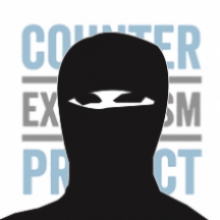
Media spokesman in Cairo
Former spokesman
Head of the Egyptian Brotherhood’s Office for Egyptians Abroad
Senior Muslim Brotherhood member, former Freedom and Justice Party minister, former secretary-general of Egypt’s Constituent Assembly
Senior member and co-founder of the Freedom and Justice Party

Head of the Higher Administrative Committee
Former president of Egypt and member of the Muslim Brotherhood (deceased)
Imprisoned supreme guide of the Muslim Brotherhood
Imprisoned deputy supreme guide
Former head of the Crisis Management Committee in Egypt, Former Chief of Education, Former Member of the Guidance Office
The Brotherhood and Brotherhood affiliates have engaged in violence against the ruling governments in Egypt, Syria, Israel, and the Palestinian territories. Since its inception, the Brotherhood’s ideology has authorized violent resistance against unjust and secular rulers.Sujata Ashwarya Cheema, “Sayyid Qutb's Concept of Jahiliyya as Metaphor for Modern Society,” Islam and Muslim Societies 2, no. 2 (2006), http://www.academia.edu/3222569/Sayyid_Qutbs_Concept_of_Jahiliyya_as_Metaphor_for_Modern_Society. The modern Brotherhood maintains it is a non-violent organization.Mahmoud Hussein, “Disorienting and Attrition: MB Secretary General Mahmoud Hussein,” Watan TV, January 16, 2017, https://www.youtube.com/watch?v=PAruv43OrPU. Nonetheless, the Brotherhood has been linked to a spate of violent attacks since Egypt’s 2011 revolutions. Between 2013 and 2019, for example, the Brotherhood allegedly created 13 affiliated groups that carried out terrorist attacks in Egypt.“Muslim Brotherhood suffers internal rifts, dismiss Secretary General Mahmoud Hussein,” Egypt Today, September 16, 2020, https://www.egypttoday.com/Article/1/91998/Muslim-Brotherhood-suffers-internal-rifts-dismiss-Secretary-General-Mahmoud-Hussein.

The U.S Department of the Treasury Office of Foreign Assets Control (OFAC) designates Harakat Sawa’id Misr (HASM) and Liwa al-Thawra, two Islamist groups active in Egypt with suspected ties to the Muslim Brotherhood, as specially Designated Global Terrorists (SDGTs) under Executive Order 13224 on January 31, 2018.“OFFICE OF FOREIGN ASSETS CONTROL - Specially Designated Nationals List Update.” U.S. Department of the Treasury, January 31, 2018, https://www.treasury.gov/resource-center/sanctions/OFAC-Enforcement/Pages/20180131.aspx.
Texas designated the Muslim Brotherhood a foreign terrorist organization and transnational criminal organization on November 18, 2025.Marissa Armas, “Abbott declares CAIR, Muslim Brotherhood terrorist organizations, bans land purchase,” CBS News, November 18, 2025, https://www.cbsnews.com/texas/news/abbott-declares-cair-muslim-brotherhood-terrorist-organizations-bans-land-purchase/.
Florida designated the Muslim Brotherhood a foreign terrorist organization on December 8, 2025.“Ron DeSantis,” X post, December 8, 2025, 5:23 p.m., https://x.com/GovRonDeSantis/status/1998156452377293228; “Florida governor declares Muslim civil rights group a terrorist organization,” Associated Press, December 8, 2025, https://apnews.com/article/florida-desantis-muslim-group-terrorist-label-7113c982c43fed198cef9eaf85b23679.
The U.S. State Department designated the Lebanese Brotherhood and its leader, Muhammad Fawzi Taqqosh, as Specially Designated Foreign Terrorists on January 13, 2026.“Terrorist Designations of Muslim Brotherhood Chapters,” U.S. Department of State, January 13, 2026, https://www.state.gov/releases/office-of-the-spokesperson/2026/01/terrorist-designations-of-muslim-brotherhood-chapters/.
The U.S. Department of the Treasury designated the Jordanian and Egyptian chapters of the Brotherhood as Specially Designated Global Terrorists for providing material support to Hamas on January 13, 2026.“Terrorist Designations of Muslim Brotherhood Chapters,” U.S. Department of State, January 13, 2026, https://www.state.gov/releases/office-of-the-spokesperson/2026/01/terrorist-designations-of-muslim-brotherhood-chapters/.
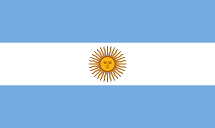
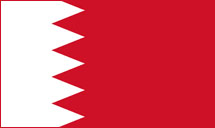
Bahrain designated the Muslim Brotherhood a terrorist organization on March 21, 2014.“Bahrain backs Saudi Arabia, UAE, Foreign Minister says,” Bahrain News Agency, March 21, 2014, http://www.bna.bh/portal/en/news/609752; Habib Toumi, “Bahrain Confirms Full Support to Saudi Arabia, UAE,” Gulf News (Dubai), March 22, 2014, http://gulfnews.com/news/gulf/bahrain/bahrain-confirms-full-support-to-saudi-arabia-uae-1.1307223.
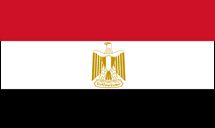
Egypt designated the Muslim Brotherhood a terrorist organization on December 25, 2013.Kareem Fahim, “Egypt, Dealing a Blow to the Muslim Brotherhood, Deems It a Terrorist Group,” New York Times, December 25, 2013, http://www.nytimes.com/2013/12/26/world/middleeast/egypt-calls-muslim-brotherhood-a-terrorist-group.html.
On January 18, 2017, an Egyptian court added former football star Mohamed Aboutrika to the country’s terror list under the suspicion that he financed the Muslim Brotherhood.“Egypt puts ex-footballer suspected of funding Muslim Brotherhood on terror list,” France 24, January 18, 2017, https://www.france24.com/en/20170118-egypt-football-star-mohamed-aboutrika-terror-list-muslim-brotherhood.
On June 27, 2018, Egypt added the names of 187 persons to its terror list over their alleged membership to the Hasm movement, a group that is suspected to be affiliated with the Muslim Brotherhood.“Egypt adds 187 names to terror lists,” Middle East Monitor, June 27, 2018, https://www.middleeastmonitor.com/20180627-egypt-adds-187-names-to-terror-lists/.
On December 28, 2022, The Cairo Criminal Court placed five members of the Brotherhood on the terrorism list for a period of five years. The five on the list are Bassem Kamal Mohamed Ouda, Amr Mohamed Zaki, Mohamed al-Sayed Ahmed Abu-Zaid, Mohamed Abdel Aal, Anwar Sobhi Darwish Mostafa, and Magdy Abdel Halim Abdel-Aziz Kharoub.Nada Mustafa, “Muslim Brotherhood-era Minister Bassem Ouda Placed on Terrorism List,” Sada Elbalad English, December 28,2022, https://see.news/muslim-brotherhood-era-minister-bassem-ouda-placed-on-terrorism-list.
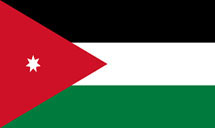
On April 23, 2025, Jordan outlawed the Muslim Brotherhood and confiscated its assets.Suleiman Al-Khalidi, “Jordan Outlaws Muslim Brotherhood, Confiscates Assets and Offices,” Reuters, April 23, 2025. https://www.reuters.com/world/middle-east/jordan-outlaws-muslim-brotherhood-group-confiscates-its-assets-offices-2025-04-23/.

Russia banned the Muslim Brotherhood from operating inside Russia in 2003.Gabriela Baczynska, “Russia may ease Muslim Brotherhood ban to boost Egypt ties,” Reuters, December 28, 2012, http://www.reuters.com/article/2012/12/18/us-egypt-politics-russia-idUSBRE8BH0VD20121218. Russia designated the Muslim Brotherhood a terrorist organization on July 28, 2006.“Russia names ‘terrorist’ groups,” BBC News, July 28, 2006, http://news.bbc.co.uk/2/hi/europe/5223458.stm.
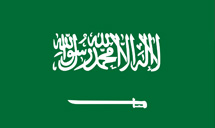
Saudi Arabia designated the Muslim Brotherhood a terrorist organization on March 7, 2014.Rania el Gamal, “Saudi Arabia designates Muslim Brotherhood terrorist group,” Reuters, March 7, 2014, http://www.reuters.com/article/2014/03/07/us-saudi-security-idUSBREA260SM20140307. On November 10, 2020, the Saudi Council of Senior Scholars accused the Brotherhood of fomenting terrorism.“UAE’s Fatwa Council denounces Muslim Brotherhood as a terrorist organization,” Middle East Eye, November 25, 2020, https://www.middleeasteye.net/news/uae-muslim-brotherhood-fatwa-council-terrorist-organisation.

Syria designated the Muslim Brotherhood a terrorist organization in 1980.“The Muslim Brotherhood in Syria,” Carnegie Endowment for International Peace, http://carnegieendowment.org/syriaincrisis/?fa=48370.
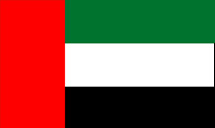
The United Arab Emirates designated the Muslim Brotherhood a terrorist organization on November 15, 2014.Adam Schreck, “Emirates brands Muslim Brotherhood terrorists,” Associated Press, November 15, 2014, http://bigstory.ap.org/article/d2e355128c2f46158798f7230050bafb/emirates-brands-muslim-brotherhood-terrorists. On the same day, the United Arab Emirates designated several Brotherhood-affiliated groups in the West, including the Council on American-Islamic Relations (CAIR), the International Islamic Relief Organization, the Muslim American Society (MAS), and the Union of Islamic Organizations of France.“UAE blacklists 82 groups as ‘terrorist’,” Al Arabiya, November 15, 2014,http://english.alarabiya.net/en/News/middle-east/2014/11/15/UAE-formally-blacklists-82-groups-as-terrorist-.html. On November 23, 2020, the UAE Fatwa Council declared the Muslim Brotherhood a terrorist organization.“UAE’s Fatwa Council denounces Muslim Brotherhood as a terrorist organization,” Middle East Eye, November 25, 2020, https://www.middleeasteye.net/news/uae-muslim-brotherhood-fatwa-council-terrorist-organisation.
As one of the oldest and broadest-reaching Islamist organizations in modern times, the Muslim Brotherhood has spawned Sunni Islamist entities, which are now largely recognized as terrorist organizations.
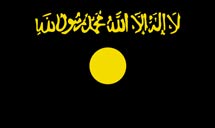
Muslim Brotherhood philosophy is believed to have spurred the creation of al-Qaeda. Sayyid Qutb’s ideology, expressed in his work Milestones, inspired Osama bin Laden, Abdullah Azzam, and others to found al-Qaeda.“Profile: Egypt’s Muslim Brotherhood,” BBC News, December 25, 2013, http://www.bbc.com/news/world-middle-east-12313405. The current emir of al-Qaeda, Ayman al-Zawahiri, joined the outlawed Muslim Brotherhood in Egypt as a teenager.“Profile: Ayman al-Zawahiri,” BBC News, August 13, 2015, http://www.bbc.com/news/world-middle-east-13789286.
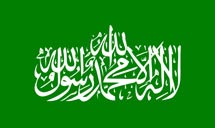
Hamas, the political Islamist organization in the Palestinian territories, is a nationalist offshoot of the Muslim Brotherhood.Andrew Higgins, “How Israel Helped to Spawn Hamas,” Wall Street Journal, January 24, 2009, http://online.wsj.com/articles/SB123275572295011847. Founded in 1988, article two of Hamas’s charter defines itself as “one of the wings of the Muslim Brothers in Palestine.” It continues, “The Muslim Brotherhood Movement is a world organization, the largest Islamic Movement in the modern era.”Andrew C. McCarthy, “Hamas is the Muslim Brotherhood,” National Review Online, January 29, 2011, http://www.nationalreview.com/corner/258381/hamas-muslim-brotherhood-andrew-c-mccarthy. However, political realities on the ground have often dictated the strength of Hamas’s desired relationship to the Brotherhood. In March 2014, Hamas was banned by the Egyptian government as part of a larger crackdown on the Brotherhood.Hazem Balousha and Patrick Kingsley, “Egyptian court bans Hamas amid crackdown on Muslim Brotherhood,” Guardian (London), March 4, 2014, http://www.theguardian.com/world/2014/mar/04/egyptian-court-bans-hamas-activities. In response, Hamas weakened ties with the Brotherhood in the interest of strengthening its relationship with Egyptian authorities responsible for the Rafah border into Gaza, a lifeline upon which Gazans rely heavily.Adnan Abu Amer, “Hamas tones down Brotherhood links to improve Egypt ties,” Al-Monitor, May 13, 2014, http://www.al-monitor.com/pulse/originals/2014/05/gaza-egypt-hamas-brotherhood-elections.html#/.
In March 2016, Egypt’s Interior Ministry accused Hamas of conspiring with the Muslim Brotherhood and coordinating the June 2015 assassination of Hisham Barakat, Egypt’s chief prosecutor, in a Cairo car bombing. Later that month, Hamas removed all pictures of former Egyptian President Mohamed Morsi and any other signs of Muslim Brotherhood links from its Gaza offices. The move reportedly came after a meeting between Hamas leaders and Egypt officials who demanded Hamas renounce its links with the Brotherhood before Egypt would restore relations with Hamas.“Hamas removes picture of Morsi, Muslim Brotherhood in Gaza,” Middle East Monitor, March 22, 2016, https://www.middleeastmonitor.com/news/middle-east/24610-hamas-removes-picture-of-morsi-muslim-brotherhood-in-gaza. Hamas spokesman Sami Abu Zuhri later denied any links between his group and the Muslim Brotherhood.Jack Khoury, “Hamas Denies Links With Muslim Brotherhood in Egypt and Elsewhere,” Haaretz (Tel Aviv), March 23, 2016, http://www.haaretz.com/middle-east-news/.premium-1.710423. In May 2017, Hamas released a new guiding political document, which made no mention of the Muslim Brotherhood.“Document of General Principles & Policies,” Hamas, May 1, 2017, http://hamas.ps/en/post/678/a-document-of-general-principles-and-policies; Patrick Wintour, “Hamas presents new charter accepting a Palestine based on 1967 borders,” Guardian (London), May 1, 2017, https://www.theguardian.com/world/2017/may/01/hamas-new-charter-palestine-israel-1967-borders.
In July 2019, Khairat el-Shater, the Brotherhood’s supreme guide, denied charges of spying for Hamas following the 2013 coup that ousted then-president Mohamed Morsi. According to court documents, el-Shater said he was asked by the intelligence services during Morsi’s one-year tenure to meet Hamas leader Ismail Haniyeh over border crossings talks.“Egypt: Muslim Brotherhood leader Khairat el-Shater denies spying charges in rare court statement,” Middle East Eye, July 18, 2019, https://www.middleeasteye.net/news/egypts-muslim-brotherhood-vice-chief-al-shater-talks-first-time-2013-reports. On September 11, 2019, imprisoned Brotherhood Supreme Guide Mohammed Badie and 10 other Brotherhood members were sentenced to life in prison on charges of spying in conjunction with Hamas.“Egypt sentences 11 Islamist leaders to life for spying,” Associated Press, September 11, 2011, https://apnews.com/2c101b12aefe4e0e992e396180da85f6.
In December 2001, the U.S. Treasury Department designated the Holy Land Foundation for Relief and Development, then the largest Muslim charity based in the U.S., as a “Specially Designated Global Terrorist” group. U.S. authorities raided the group’s headquarters and seized its assets.“Statement of Secretary Paul O'Neill on the Blocking of Hamas Financiers’ Assets,” U.S. Department of the Treasury, December 4, 2001, http://www.treasury.gov/press-center/press-releases/Pages/po837.aspx.
In November 2008, five former leaders of the Holy Land Foundation for Relief and Development (HLF), a Muslim charity based in the U.S., were found guilty by a U.S. court for facilitating the transfer of more than $12 million to Hamas.“No Cash for Terror: Convictions Returned in Holy Land Case,” Federal Bureau of Investigation, November 25, 2008, http://www.fbi.gov/news/stories/2008/november/hlf112508.
The U.S. government presented testimony during the trial. According to the FBI, “[I]n the early 1990’s, Hamas’ parent organization, the Muslim Brotherhood, planned to establish a network of organizations in the U.S. to spread a militant Islamist message and raise money for Hamas. The HLF became the chief fundraising arm for the Palestine Committee in the U.S. created by the Muslim Brotherhood to support Hamas.”“Federal Judge Hands Down Sentences in Holy Land Foundation Case,” Federal Bureau of Investigation, May 27, 2009, http://www.fbi.gov/dallas/press-releases/2009/dl052709.htm. Among the seized evidence presented by the U.S. government was an internal Brotherhood “Explanatory Memorandum On the General Strategic Goal for the Group in North America,” addressed to the members of the Brotherhood’s Shura Council, and dated May 22, 1991.“Exhibit Elbarasse Search - 3,” USA v. Holy Land Foundation for Relief and Development, September 25, 2008, http://www.txnd.uscourts.gov/judges/hlf2/09-25-08/Elbarasse%20Search%203. The document articulated the Brotherhood’s goals for North America as, among others, “present[ing] Islam as a civilization alternative, and support[ing] the global Islamic State wherever it is.”“Exhibit Elbarasse Search - 3,” USA v. Holy Land Foundation for Relief and Development, September 25, 2008, http://www.txnd.uscourts.gov/judges/hlf2/09-25-08/Elbarasse%20Search%203. The document also emphasized that to achieve these and other multi-stage goals, “the Movement must… carry out this grand mission as a ‘Civilization Jihadist’ responsibility which lies on the shoulders of Muslims and—on top of them—the Muslim Brotherhood in this country.”“Exhibit Elbarasse Search - 3,” USA v. Holy Land Foundation for Relief and Development, September 25, 2008, http://www.txnd.uscourts.gov/judges/hlf2/09-25-08/Elbarasse%20Search%203. This meant that the Brotherhood’s “work in America is a kind of grand Jihad in eliminating and destroying the Western civilization from within and ‘sabotaging’ its miserable house by their hands and the hands of the believers so that it is eliminated and God’s religion is made victorious over all other religions.”“Exhibit Elbarasse Search - 3,” USA v. Holy Land Foundation for Relief and Development, September 25, 2008, http://www.txnd.uscourts.gov/judges/hlf2/09-25-08/Elbarasse%20Search%203.
The document emphasized the importance of establishing an “Islamic Center” in each city as a base for the Brotherhood’s multifaceted work, as well as many other institutions that would serve as the foundation of the group’s jihad efforts in North America. The document also included a list of Brotherhood organizations and “the organizations of our friends,” which included prominent Muslim organizations in America, including the Islamic Society of North America, Muslim Students Association, North American Islamic Trust, and Islamic Circle of North America.“Exhibit Elbarasse Search - 3,” USA v. Holy Land Foundation for Relief and Development, September 25, 2008, http://www.txnd.uscourts.gov/judges/hlf2/09-25-08/Elbarasse%20Search%203.
Hasm (“Decisiveness”) is an Egyptian militant group that emerged in 2014. Police suspect it is a violent wing of the Muslim Brotherhood, though the Brotherhood denies any ties to militant groups. Hasm has claimed it wants to end the “military occupation of Egypt by militias of (President) Abdel-Fatah el-Sissi.”Nour Youssef, “Bomb at Checkpoint in Cairo Area Kills 6 Police Officers,” New York Times, December 9, 2016, https://www.nytimes.com/2016/12/09/world/middleeast/cairo-giza-bomb.html?ref=world.; “Egypt violence: Six police officers killed by militants in Cairo,” BBC News, December 9, 2016, https://www.bbc.com/news/world-middle-east-38267046.; “Egypt's former grand mufti survives shooting west of Cairo,” Associated Press via Daily Mail, August 5, 2016, https://www.dailymail.co.uk/wires/ap/article-3725357/Egypts-former-grand-mufti-survives-shooting-south-Cairo.html. Hasm has accused the Egyptian government of imprisoning thousands of innocent people which has incentivized the group to target security forces as well as carry out assassination attempts on public figures.Dr. Shay Shaul, “Egypt - The Hasm Terrorist Group,” International Institute for Counter-Terrorism, March 19, 2017, https://www.ict.org.il/Article/1965/egypt-the-hasm-terrorist-group#gsc.tab=0.; Sudarsan Raghavan, “Explosives-packed car kills 20, injures dozens in Cairo collision,” Washington Post, August 5, 2019, https://beta.washingtonpost.com/world/explosives-packed-car-kills-20-injures-dozens-in-cairo-collision/2019/08/05/1cf14256-b798-11e9-8e83-4e6687e99814_story.html?noredirect=on.
Hasm claimed responsibility for a December 9, 2016, bombing that killed six police officers outside of Cairo. The group also claimed responsibility for an assassination attempt on a senior Egyptian prosecutor that September. As of December 2016, Hasm had claimed responsibility for at least half a dozen attacks since the group’s emergence that July.“Egypt's Hasm militants claim attack targeting Myanmar embassy,” Reuters, October 1, 2017, https://www.reuters.com/article/us-egypt-security/egypts-hasm-militants-claim-attack-targeting-myanmar-embassy-idUSKCN1C705D.; Nour Youssef,“Bomb at Checkpoint in Cairo Area Kills 6 Police Officers,” New York Times, December 9, 2016, https://www.nytimes.com/2016/12/09/world/middleeast/cairo-giza-bomb.html?ref=world.; “Egypt violence: Six police officers killed by militants in Cairo,” BBC News, December 9, 2016, https://www.bbc.com/news/world-middle-east-38267046.
On September 30, 2017, Hasm claimed responsibility for a small explosion at Myanmar’s embassy in Cairo. It was the group’s first reported attack on a civilian target. There were no casualties. The group claimed the attack was in response to Myanmar’s military crackdown on Rohingya Muslims.“Egypt's Hasm militants claim attack targeting Myanmar embassy,” Reuters, October 1, 2017, https://www.reuters.com/article/us-egypt-security/egypts-hasm-militants-claim-attack-targeting-myanmar-embassy-idUSKCN1C705D. In 2019, Hasm was responsible for two major explosions—one in May that killed 17 people near the Giza Pyramids, and one in August that damaged a cancer hospital and killed over 20 people.“Explosion hits tourist bus near Egypt’s Gaza Pyramids,” Al Jazeera, May 19, 2019, https://www.aljazeera.com/news/2019/05/explosion-hits-tourist-bus-egypt-giza-pyramids-190519125849368.html; Samy Magdy, “Cab bomb collides with vehicles in Egypt capital, killing 20,” Associated Press, August 5, 2019, https://www.apnews.com/2e69f9d17d0d43e5a31be12a030e7da2.
In January 2019, Egyptian authorities also arrested several Hasm members accused of planning to disrupt the January 25 anniversary of the revolution against Hosni Mubarak. According to the Interior Ministry, a Brotherhood member in Turkey had directed the local Hasm members.“Egypt arrests 54 suspected of planning violence on uprising anniversary,” Reuters, January 29, 2019, https://www.reuters.com/article/us-egypt-security/egypt-arrests-54-suspected-of-planning-violence-on-uprising-anniversary-idUSKCN1PN1UZ. In January 2020, Egyptian authorities again accused Hasm of seeking to disrupt the anniversary of Mubarak’s overthrow by promoting fake news and spreading discord among Egyptians. The government arrested six Hasm members accused of plotting to “target important figures and buildings as well as places of worship” and organize protests on the anniversary later that month.Agence France-Presse, “Egypt Arrests 6 Planning ‘Chaos’ on Uprising Anniversary,” Naharnet, January 22, 2020, http://www.naharnet.com/stories/en/268419-egypt-arrests-6-planning-chaos-on-uprising-anniversary. Egypt again accused Brotherhood members in Turkey of orchestrating the plots and inciting the Egyptian public against the government.“Egypt expands arrest campaigns ahead of revolution anniversary,” Middle East Monitor, January 23, 2020, https://www.middleeastmonitor.com/20200123-egypt-expands-arrest-campaigns-ahead-of-revolution-anniversary/.
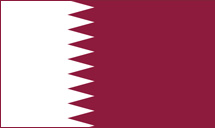
Qatar has long supported the Brotherhood through financial, public diplomacy and media-based pathways, with Qatar’s backing largely based on the entities’ similar interpretations of political Islam. The Qatar-owned satellite network Al Jazeera is often perceived as biased towards the Brotherhood.Christia Case Bryant, “Behind Qatar’s bet on the Muslim Brotherhood,” Christian Science Monitor, April 18, 2014, accessed May 30, 2014, http://www.csmonitor.com/World/Middle-East/2014/0418/Behind-Qatar-s-bet-on-the-Muslim-Brotherhood.
Qatar loaned Morsi’s government approximately $7.5 billion during the Brotherhood’s year in power.“Egypt has paid back $500 million to Qatar: central bank governor,” Reuters, October 11, 2014, http://www.reuters.com/article/2014/10/11/us-egypt-qatar-deposits-idUSKCN0I009A20141011. Qatar also reportedly aided Morsi’s regime with grants and “energy supplies,” according to Reuters.“Egypt to repay $2.5 bln Qatari deposit at end-Nov-Cbank source,” Reuters, November 6, 2014, http://www.reuters.com/article/2014/11/06/egypt-qatar-deposits-idUSL6N0SW1U420141106. During Morsi’s presidency, funds as high as $850,000 were reportedly secretly transferred to the Brotherhood from Qatar’s former Prime Minister Sheikh Hamad bin Jassim bin Jaber Al Thani.Paul Alster, “Secret Document Appears to Show Qatar Payoffs to Key Morsi Cronies,” Fox News, June 9 2013, http://www.foxnews.com/world/2013/07/09/secret-document-appears-to-show-qatar-payoffs-to-key-morsi-cronies/.
Qatar refused to join suit as its Gulf neighbors labeled the Brotherhood a terrorist organization in 2013 and 2014. However, in mid-September 2014, top Muslim Brotherhood members claimed that they had been “asked to leave Qatar” as the small Arab country came under pressure from its neighbors to cut off support for the Brotherhood.David D. Kirkpatrick, “Muslim Brotherhood Says Qatar Ousted Its Members,” New York Times, September 13, 2014, http://www.nytimes.com/2014/09/14/world/middleeast/bowing-to-pressure-qatar-asks-some-muslim-brotherhood-leaders-to-leave.html?action=click&contentCollection=Middle%20East®ion=Footer&module=MoreInSection&pgtype=article.
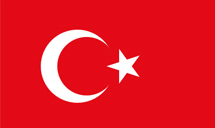
Turkey has long been a hub for the Brotherhood’s international organization. Especially following President Morsi’s ouster, regrouping and logistical efforts to strengthen the international Brotherhood community were reportedly hosted by Istanbul.Mohammad Abdel Kader, “Turkey’s relationship with the Muslim Brotherhood,” Al Arabiya, October 14, 2013, http://english.alarabiya.net/en/perspective/alarabiya-studies/2013/10/14/Turkey-s-relationship-with-the-Muslim-Brotherhood.html. Turkey has also reportedly provided the Egyptian Muslim Brotherhood with weaponry and intelligence.Mohammad Abdel Kader, “Turkey’s relationship with the Muslim Brotherhood,” Al Arabiya, October 14, 2013, http://english.alarabiya.net/en/perspective/alarabiya-studies/2013/10/14/Turkey-s-relationship-with-the-Muslim-Brotherhood.html. Members of Turkey’s leading Justice and Development Party (AKP)—including Turkish President Recep Tayyip Erdoğan—have provided various forms of support to the Brotherhood, including granting asylum to wanted Brotherhood members.Svante Cornell and M.K. Kaya, “The Naqshbandi-Khalidi Order and Political Islam in Turkey,” Hudson Institute, September 3, 2015, https://hudson.org/research/11601-the-naqshbandi-khalidi-order-and-political-islam-in-turkey; Mohammad Abdel Kader, “Turkey’s relationship with the Muslim Brotherhood,” Al Arabiya, October 14, 2013, http://english.alarabiya.net/en/perspective/alarabiya-studies/2013/10/14/Turkey-s-relationship-with-the-Muslim-Brotherhood.html; Umar Farooq, “Turkey Nurtures Egypt’s ‘Terrorist’ Muslim Brothers,” Daily Beast, April 15, 2015, http://www.thedailybeast.com/articles/2015/04/15/turkey-nurtures-egypt-s-terrorist-muslim-brothers.html; “Egyptian court sentences Muslim Brotherhood members to life,” Deutsche Welle, July 5, 2014, http://www.dw.com/en/egyptian-court-sentences-muslim-brotherhood-members-to-life/a-17760287; “Pro-Brotherhood TV presenter to stand trial in absentia on 8 July,” Daily News Egypt, June 29, 2015, http://www.dailynewsegypt.com/2015/06/29/pro-brotherhood-tv-presenter-to-stand-trial-in-absentia-on-8-july/. According to Mohammed Abdel Kader of the Saudi-based Al Arabiya Institute for Studies, Turkey’s support has highlighted “Erdogan’s ties with the Muslim Brotherhood…. and their mutual interest in restoring ‘the era of Islamic rule,’ seen by the Brotherhood as the basis for protecting ‘the Islamic nation.’”Mohammad Abdel Kader, “Turkey’s relationship with the Muslim Brotherhood,” Al Arabiya, October 14, 2013, http://english.alarabiya.net/en/perspective/alarabiya-studies/2013/10/14/Turkey-s-relationship-with-the-Muslim-Brotherhood.html. However, when Egyptian President el-Sisi took office, relations between Turkey and the Brotherhood weakened due to Turkey’s fear of alienation and reprisal from Egypt and the Gulf states.Senem Aydın-Düzgit, “The Seesaw Friendship Between Turkey’s AKP and Egypt’s Muslim Brotherhood,” Carnegie Endowment for International Peace, July 24, 2014, http://carnegieendowment.org/2014/07/24/seesaw-friendship-between-turkey-s-akp-and-egypt-s-muslim-brotherhood.
In May 2010, the Turkish humanitarian NGO the Humanitarian Relief Foundation (IHH) crewed a Turkish flotilla through international waters, edging the ships toward Gaza in an attempt to break the Israeli blockade and supply what it claims was humanitarian aid. The Israeli navy raided one of the ships, the Mavi Marmara, resulting in the death of nine IHH members onboard. A detailed report on the incident, published by the Jerusalem Center for Public Affairs, asserts that the IHH networked with and received financial support from the Turkish Muslim Brotherhood. According to the report, IHH and the Turkish Brotherhood were provided passengers for the flotilla from the global Muslim Brotherhood organization.Steven G. Merley, “Turkey, the Global Muslim Brotherhood, and the Gaza Flotilla,” Jerusalem Center for Public Affairs, accessed June 17, 2015, 8, http://www.jcpa.org/text/Turkey_Muslim_Brotherhood.pdf; Robert Booth, “Israeli attack on Gaza flotilla sparks international outrage,” Guardian, May 31, 2010, http://www.theguardian.com/world/2010/may/31/israeli-attacks-gaza-flotilla-activists.
Turkey allows a handful of pro-Brotherhood media stations to operate within the country. Stations such as Rabia TV, al-Sharq, and al-Watan (formerly Misr Alaan)—run by exiled Egyptian Brotherhood members such as former Secretary-General Mahmoud Hussein and Brotherhood politician Basim al-Khafagy—often broadcast pro-Islamist messaging including glorified accounts of Brotherhood clashes with the Egyptian government and threats directed at Western-owned companies in Egypt to leave the country.“Muslim Brotherhood Operatives in Turkey Call For Killing Egyptian Officials, Threaten Egypt; Turkish MP: Turkey Shelters ‘Many MB and Hamas Members,’” MEMRI, February 6, 2015, https://www.memri.org/reports/muslim-brotherhood-operatives-turkey-call-killing-egyptian-officials-threaten-egypt-turkish; Mostafa Hashem, “The Great Brotherhood Divide,” Carnegie Endowment for International Peace, March 02, 2016, http://carnegieendowment.org/sada/?fa=62942; Mary Atkinson, “Egypt asks France to shut down pro-Brotherhood satellite channel,” Middle East Eye, May 13, 2015, http://www.middleeasteye.net/news/egypt-asks-france-shut-down-pro-brotherhood-satellite-channel-208107289; Fehim Tastekin, “Turkey accused of escalating violence in Egypt,” Al Monitor, February 6, 2015, http://www.al-monitor.com/pulse/originals/2015/02/turkey-egypt-muslim-brotherhood-escalating-violence.html. In February 2015, these channels broadcasted threats against Egypt.“Muslim Brotherhood Operatives in Turkey Call For Killing Egyptian Officials, Threaten Egypt; Turkish MP: Turkey Shelters 'Many MB And Hamas Members,’” MEMRI, February 6, 2015, https://www.memri.org/reports/muslim-brotherhood-operatives-turkey-call-killing-egyptian-officials-threaten-egypt-turkish. This followed a January 29, 2015, broadcast on Rabia TV warning foreign nationals to leave Egypt or face violence.“ON MUSLIM BROTHERHOOD TV FROM TURKEY: THREATS OF TERROR ATTACKS AGAINST FOREIGN NATIONALS, INTERESTS OF EGYPT,” MEMRI, January 29, 2015, https://www.memri.org/tv/muslim-brotherhood-tv-turkey-threats-terror-attacks-against-foreign-nationals-interests-egypt. In March 2021, the Turkish government requested the Brotherhood channels decrease their criticism of Egypt as Turkey sought to repair its relationship with the country. The Brotherhood did not comment on the request.Suzan Fraser and Samy Magdy, “Turkey asks Brotherhood TVs to dim criticism of Egypt,” Associated Press, March 19, 2021, https://apnews.com/article/turkey-television-istanbul-egypt-cairo-d0324373f40449cbf488a0ac58c44605. Turkey restored diplomatic contacts with Egypt that month, eight years after suspending them following the fall of Egypt’s Brotherhood government. Nonetheless, Turkish officials said their country remained opposed to Egypt labeling the Brotherhood a terrorist organization.“Turkey says it still opposes Egypt labeling Muslim Brotherhood ‘terrorists,’” Reuters, April 20, 2021, https://www.reuters.com/business/media-telecom/turkey-says-it-remains-against-egypt-labeling-muslim-brotherhood-terrorists-2021-04-20/.
In a July 2022 interview with Reuters, then-Brotherhood Secretary-General Ibrahim Mounir noted Turkey had been repairing its relations with Egypt but had not yet pressured the Brotherhood vis-à-vis its relationship with the country. Mounir acknowledged Turkey’s right to take any action to secure the peace and security of its people, but thus far the Brotherhood did not “see or feel it.”Dominic Evans, “Egypt’s Muslim Brotherhood rejects ‘struggle for power’, exiled leader says,” Reuters, July 29, 2022, https://www.reuters.com/world/middle-east/egypts-muslim-brotherhood-rejects-struggle-power-exiled-leader-says-2022-07-29/. In October 2022, Turkish officials denied media reports the Turkish authorities had arrested 34 Muslim Brotherhood members who called for protests in Egypt during the U.N. Climate Change Conference.“Turkey: Officials deny arrest of 34 Muslim Brotherhood members,” Middle East Monitor, October 31, 2022, https://www.middleeasteye.net/news/turkey-officials-deny-arrest-34-muslim-brotherhood-members.
The International Union of Muslim Scholars (IUMS) is a Qatar-based Islamist organization whose leaders are linked the Muslim Brotherhood. According to its website, IUMS is “concerned with the call (Da’wah) to Islam by tongue, pen, and every contemporary legitimate medium; be it recorded, audio, or visual.”“Introduction,” International Union of Muslim Scholars, November 4, 2015, http://iumsonline.org/en/ContentDetails.aspx?ID=8151. IUMS claims to represent “all Muslims in the entire Islamic world, as well as the Muslim and Islamic groups outside of the Islamic world.”“Introduction,” International Union of Muslim Scholars, November 4, 2015, http://iumsonline.org/en/ContentDetails.aspx?ID=8151. Its membership comprises around 95,000 scholars and 67 scholarly organizations from around the Muslim world, according to the group.Hassan Obeid, “Qaradaghi: We support action against Houthis,” Al-Monitor, April 19, 2015, http://www.al-monitor.com/pulse/originals/2015/04/palestine-international-union-of-muslim-scholars-alqaradaghi.html.
IUMS was previously headed by Yusuf al-Qaradawi,“International Union of Muslim scholars ‘rejects normalisation with Israel and calls for release of prisoners of conscience,’” Middle East Monitor, November 9, 2018, https://www.middleeastmonitor.com/20181109-international-union-of-muslim-scholars-rejects-normalisation-with-israel-and-calls-for-release-of-prisoners-of-conscience/. the informal theologian of the Muslim Brotherhood.“Sheikh Dr Yusuf al-Qaradawi,” Muslim 500, accessed June 11, 2015, http://themuslim500.com/profile/sheikh-dr-yusuf-al-qaradawi. Qaradawi and other members of the Brotherhood founded the IUMS in Dublin, Ireland, in 2004.“Islamist group rejects terrorism charge by states boycotting Qatar,” Reuters, December 1, 2017, https://www.reuters.com/article/gulf-qatar/islamist-group-rejects-terrorism-charge-by-states-boycotting-qatar-idUSL8N1O12V8; “International Union of Muslim scholars ‘rejects normalisation with Israel and calls for release of prisoners of conscience,’” Middle East Monitor, November 9, 2018, https://www.middleeastmonitor.com/20181109-international-union-of-muslim-scholars-rejects-normalisation-with-israel-and-calls-for-release-of-prisoners-of-conscience/. Qaradawi announced the IUMS’s creation during a July 2004 meeting in London of the Ireland-based European Council for Fatwa and Research.Steven Stalinsky, “Sheikh Yousef Al-Qaradhawi in London to Establish ‘The International Council of Muslim Clerics,’” MEMRI, July 8, 2004, http://www.memri.org/report/en/0/0/0/0/0/0/1168.htm#_edn2. As of 2009, the IUMS website continued to list Dublin as the group’s headquarters, while Irish incorporation records listed IUMS as operating at the same address as the Islamic Cultural Centre of Ireland, a Qatari-funded Islamic center in Ireland also linked to the Muslim Brotherhood.Steven Merley, “The Muslim Brotherhood in Ireland,” Global Muslim Brotherhood Research Center, June 2009, https://www.globalmbresearch.com/wp-content/uploads/2015/04/MB-in-Ireland_final.pdf. The current iteration of the IUMS website, however, declares the organization and its leadership are based in Qatar.International Union of Muslim Scholars, homepage, accessed May 17, 2019, http://iumsonline.org/en/.
The European Council for Fatwa and Research (ECFR) is a Muslim Brotherhood-affiliated organization headquartered in Dublin, Ireland.Peter Mandaville, et al. “Muslim Networks and Movements in Western Europe,” Pew Forum on Religion & Public Life, September 2010, http://www.pewforum.org/files/2010/09/Muslim-networks-full-report.pdf. The Council was established in 1997 to address the difficulties that Muslims had with integration in Europe, chiefly reconciling Islamic law and tradition with European society. The ECFR issues fatwas in order to guide European Muslims on how to follow sharia outside of the Muslim world, according to the Anti-Defamation League.“Sheikh Yusuf al-Qaradawi: Theologian of Terror,” Anti-Defamation League, March 15, 2011, https://www.adl.org/news/article/sheik-yusuf-al-qaradawi-theologian-of-terror.
The ECFR is reportedly dominated by non-Europeans who have do not have the same cultural background or understanding of societal norms as the European Muslims they are counseling. A council member once espoused rhetoric from the notorious anti-Semitic book The Protocols of the Elders of Zion, describing a Jewish plot to weaken Muslim moral values through sexual permissiveness.Ian Johnson, “Islamic Justice Finds a Foothold In Heart of Europe,” Wall Street Journal, August 4, 2015, http://www.wsj.com/articles/SB112311814949504607. A 2006 diplomatic cable from the U.S. Embassy in Ireland claimed the ECFR was “little more than a paper tiger” that seeks a great role on Islam in Europe but has no enforcement mechanism for its fatwas and does not follow through with implementation of its decrees.“Ireland: Islam in Europe (C-DI5-01478),” WikiLeaks, July 7, 2006, https://wikileaks.org/plusd/cables/06DUBLIN798_a.html.In the same diplomatic cable, the United States expressed concern that the ECFR was attempting to supplant tenets of Western society that were incompatible with Islam.Gavan Reilly, “USA had concerns over Dublin-based Muslim think tank – WikiLeaks,” Journal (Ireland), April 26, 2011, http://www.thejournal.ie/usa-had-conerns-over-dublin-based-muslim-think-tank-wikileaks-126383-Apr2011/.
The ECFR is housed at the Islamic Cultural Center of Ireland (ICCI), best known as “the Clonskeagh Mosque,” or the largest mosque in Ireland.“Ireland: Islam in Europe (C-DI5-01478),” WikiLeaks, July 7, 2006, https://wikileaks.org/plusd/cables/06DUBLIN798_a.html. The mosque has denied claims that it is dominated by groups like the Muslim Brotherhood.Mary Fitzgerald, “Clonskeagh mosque rejects US Claims,” Irish Times (Dublin), April 28, 2011, http://www.irishtimes.com/news/clonskeagh-mosque-rejects-us-claims-1.582873.
The Muslim Association of Britain (MAB) is an independent, non-profit British organization labeled a terrorist group by the United Arab Emirates. The group has condemned terrorism and proclaimed jihad refers to an “internal struggle to avoid negative actions and cultivate good character.”“Frequently Asked Questions,” Muslim Association of Britain, accessed January 18, 2018, https://www.mabonline.net/about/faq/. The organization has, however, been tied to extremist personalities and groups, such as Anwar al-Awlaki and the Muslim Brotherhood. In December 2015, the U.K. government released a commissioned report detailing Muslim Brotherhood activity in the United Kingdom, including details on the MAB and its ties to the international Islamist organization.Muslim Brotherhood Review: Main Findings, GOV.UK, December 17, 2015, https://www.gov.uk/government/uploads/system/uploads/attachment_data/file/486932/Muslim_Brotherhood_Review_Main_Findings.pdf. According to the report, the Brotherhood “dominated” the MAB for years.Muslim Brotherhood Review: Main Findings, GOV.UK, December 17, 2015, https://www.gov.uk/government/uploads/system/uploads/attachment_data/file/486932/Muslim_Brotherhood_Review_Main_Findings.pdf. The MAB denies any connections to the Muslim Brotherhood and insists it is an independent organization. However, the MAB acknowledges that it “shares some of the main principles that the Muslim Brotherhood stands for,” such as “upholding democracy, freedom of the individual, social justice and the creation of a civil society.”“Frequently Asked Questions,” Muslim Association of Britain, accessed January 18, 2018, https://www.mabonline.net/about/faq/.
Founded by members of the Muslim Brotherhood in 1993, the Muslim American Society (MAS) was designed to be a public face of the Brotherhood in the United States. According to interviews of Brotherhood members by the Chicago Tribune, MAS was begun in Illinois to allow Brotherhood members to operate openly in the country. Brotherhood members told the Tribune they initially gathered at a Holiday Inn near the Alabama-Tennessee border to debate the merits of operating publicly versus covertly. They agreed they would not call themselves the Brotherhood to allow the new organization to publicly distance itself while promoting the Brotherhood’s ideology. The move was reportedly advocated by Mohammed Mahdi Akef, a Brotherhood leader in Egypt who went on to lead the organization internationally.Noreen S. Ahmed-Ullah, Sam Roe, and Laurie Cohen, “A rare look at secretive Brotherhood in America,” Chicago Tribune, September 19, 2004, https://www.chicagotribune.com/investigations/chi-0409190261sep19-story.html.
MAS’s website describes the Brotherhood as an “influential part of post-colonial Muslim history,” adding that while the works of Brotherhood thinkers may not be applicable to Muslims in America, they are still worth critical evaluation.“Frequently Asked Questions,” Muslim American Society, accessed March 23, 2020, http://www.muslimamericansociety.org/faq/. According to former MAS Secretary-General Shaker Elsayed, MAS no longer has any connection to the Brotherhood but still believes in the writings of Brotherhood founder Hassan al-Banna.Noreen S. Ahmed-Ullah, Sam Roe, and Laurie Cohen, “A rare look at secretive Brotherhood in America,” Chicago Tribune, September 19, 2004, https://www.chicagotribune.com/investigations/chi-0409190261sep19-story.html. In 2014, the United Arab Emirates designated MAS a terrorist organization.“UAE Cabinet approves list of designated terrorist organisations, groups,” Emirates News Agency, November 16, 2014, http://wam.ae/en/details/1395272478814; Adam Taylor, “Why the U.A.E. is calling 2 American groups terrorists,” Washington Post, November 17, 2014, https://www.washingtonpost.com/news/worldviews/wp/2014/11/17/why-the-u-a-e-is-calling-2-american-groups-terrorists/.
Members of the Muslim Brotherhood established the Muslim Students Association of the U.S. and Canada (MSA or MSA National) in 1963 at the University of Illinois Urbana-Champaign.“About,” MSA National, accessed February 6, 2020, https://msanational.squarespace.com/about; Christopher Holton, “The Muslim Brotherhood’s Muslim Students’ Association: What Americans Need to Know,” Center for Security Policy, April 29, 2018, https://www.centerforsecuritypolicy.org/2018/04/29/the-muslim-brotherhoods-muslim-students-association-what-americans-need-to-know/. The Saudi charity the Muslim World League (MWL) sponsored the first MSA chapters.Jane El Horr and Sana Saeed, “Campus Radicals: A New Muslim Student Group Tries to Rouse the Moderates,” Wall Street Journal, June 20, 2008, https://www.wsj.com/articles/SB121391832473590285. MSAs spread across American campuses in the 1960s and 1970s. MSAs promoted values associated with the conservative strain of Islam practiced in Saudi Arabia. For example, the organization accepted only male members who did not use alcohol. Women were initially barred from MSAs, while men and women were discouraged from intermingling.Neil MacFarquhar, “For Muslim Students, a Debate on Inclusion,” New York Times, February 21, 2008, https://www.nytimes.com/2008/02/21/education/21muslim.html?pagewanted=print.
As MSA grew, it publicly abandoned its affiliation with the Brotherhood. Since 1991, MSA National has shifted its agenda to focus primarily on domestic rather than international issues. According to Edward Curtis IV, author of Muslims in America: A Short History, coordination between the Brotherhood and MSA National is “a fantasy of Islamophobes.”Nathan Guttman, “Muslim Students: Radicals or Partners?,” Forward, May 1, 2012, https://forward.com/news/155364/muslim-students-radicals-or-partners/. MSA National makes no mention of the Brotherhood’s involvement in its founding.“About,” MSA National, accessed February 6, 2020, https://msanational.squarespace.com/about. But while MSA National has expunged the Brotherhood from its narrative, MSAs around the country continue to create programing that is sympathetic to Brotherhood ideology. Between 2006 and 2007, the New York Police Department (NYPD) monitored various MSAs in the Eastern United States following the arrest or conviction of 12 former MSA members on terrorism charges.Chris Hawley, “NYPD monitored Muslim students all over Northeast,” Associated Press, February 18, 2012, https://www.ap.org/ap-in-the-news/2012/nypd-monitored-muslim-students-all-over-northeast. Also, in 2010, the University of California, Irvine temporarily suspended its MSA chapter after members disrupted a speech by an Israeli ambassador.Ellyn Pak, “UCI’s Muslim Student Union suspended for a quarter,” Orange County Register, September 5, 2010, https://www.ocregister.com/2010/09/05/ucis-muslim-student-union-suspended-for-a-quarter/.
The Muslim World League (MWL) is a global organization founded in Saudi Arabia in 1962 to provide religious and other services to Muslims throughout the world. The World Assembly of Muslim Youth (WAMY) was founded in Saudi Arabia in 1972 as MWL’s youth wing.“Muslim World League and World Assembly of Muslim Youth,” Pew Research Center, September 15, 2010, https://www.pewforum.org/2010/09/15/muslim-networks-and-movements-in-western-europe-muslim-world-league-and-world-assembly-of-muslim-youth/. MWL’s stated goal is to “present the true Islam” and promote its tenets while dispelling misconceptions.“About MWL,” Muslim World League, accessed April 7, 2021, https://themwl.org/en/MWL-Profile. MWL adheres to the conservative form of Islam practiced in Saudi Arabia.“Muslim World League and World Assembly of Muslim Youth,” Pew Research Center, September 15, 2010, https://www.pewforum.org/2010/09/15/muslim-networks-and-movements-in-western-europe-muslim-world-league-and-world-assembly-of-muslim-youth/. WAMY is a U.N.-affiliated NGO whose mission is to “to build bridges of peace and unity in our multicultural society.”“About Us,” World Assembly of Muslim Youth UK, accessed April 7, 2021, https://wamy.co.uk/about-us/. It is reportedly the world’s largest Muslim youth organization and seeks to “arm the Muslim youth with full confidence in the supremacy of the Islamic system over other systems.”“Third public hearing of the National Commission on Terrorist Attacks Upon the United States,” National Commission on Terrorist Attacks Upon the United States,” July 9, 2003, https://govinfo.library.unt.edu/911/hearings/hearing3/witness_emerson.htm. WAMY’s U.S. branch incorporated in 1992.“World Assembly of Muslim Youth (WAMY),” Discover the Networks, accessed March 3, 2020, https://www.discoverthenetworks.org/organizations/world-assembly-of-muslim-youth-wamy/. While neither MWL or WAMY follow Muslim Brotherhood ideology, both groups have at times partnered with the Brotherhood and Brotherhood-affiliated organizations.“Muslim World League and World Assembly of Muslim Youth,” Pew Research Center, September 15, 2010, https://www.pewforum.org/2010/09/15/muslim-networks-and-movements-in-western-europe-muslim-world-league-and-world-assembly-of-muslim-youth/. Further, senior Brotherhood member Dr. Kemal el-Helbawy has held senior positions in both MWL and WAMY, which he helped create.Curriculum Vitae of Dr. Kamal el-Helbawy, Internet Archive, accessed March 3, 2020, http://web.archive.org/web/20080530133410/http://www.khelbawy.com/about.html; “Muslim World League and World Assembly of Muslim Youth,” Pew Research Center, September 15, 2010, https://www.pewforum.org/2010/09/15/muslim-networks-and-movements-in-western-europe-muslim-world-league-and-world-assembly-of-muslim-youth/.
Founded in 1994, the Council on American Islamic Relations (CAIR) is a Muslim civil rights organization with chapters across the United States.“CAIR at a Glance,” Council on American-Islamic Relations, accessed February 21, 2020, https://www.cair.com/about_cair/cair-at-a-glance/. CAIR was founded by members of the Islamic Association for Palestine (IAP), which in turn was founded in 1981 by members of the Brotherhood. The U.S. government has accused IAP of being part of a U.S. support network for Palestinian terrorist group Hamas.Elizabeth J. Shapiro, “The Holy Land Foundation for Relief and Development: A Case Study,” United States Attorneys’ Bulletin, U.S. Department of Justice, September 2014, https://www.justice.gov/sites/default/files/usao/legacy/2014/09/23/usab6205.pdf. The IAP began distributing Hamas propaganda immediately after the terror group’s founding in 1987.Peter Skerry, “The Muslim American Muddle,” National Affairs, Fall 2011, https://www.nationalaffairs.com/publications/detail/the-muslim-american-muddle; “Profile: The Council on American Islamic Relations,” Anti-Defamation League, 2015, 5, https://www.adl.org/sites/default/files/documents/assets/pdf/israel-international/israel--middle-east/Profile-The-Council-on-American-Islamic-Relations.pdf.
In 2001, the U.S. government labeled the Texas-based Holy Land Foundation (HLF) a Specially Designated for fundraising on behalf of Hamas.“No Cash for Terror,” FBI, November 25, 2008, https://archives.fbi.gov/archives/news/stories/2008/november/hlf112508; Gretel C. Kovach, “Five Convicted in Terrorism Financing Trial,” New York Times, November 24, 2008, https://www.nytimes.com/2008/11/25/us/25charity.html. During the trial of HLF leaders in the early 2000s, evidence emerged linking CAIR to Hamas and the Brotherhood’s Palestine Committee, resulting in CAIR being named an unindicted coconspirator.FBI Office of the Inspector General – Evaluation and Inspections Division, “Review of FBI Interactions with the Council on American-Islamic Relations,” U.S. Department of Justice, September 2013, https://oig.justice.gov/reports/2013/e0707r-summary.pdf. HLF leaders were eventually found guilty of funneling more than $12 million to Hamas. In 2008, the FBI restricted the non-investigative interactions of its field offices with CAIR.“Review of FBI Interactions with the Council on American-Islamic Relations,” U.S. Department of Justice, September 2013, https://oig.justice.gov/reports/2013/e0707r-summary.pdf. CAIR denies any affiliation with the Brotherhood and maintains that its status as an unindicted coconspirator does not carry any negative or nefarious connotations.“Dispelling Rumors About CAIR,” Council on American-Islamic Relations, last updated October 2017, https://www.cair.com/about_cair/dispelling-rumors-about-cair/. In 2014, the United Arab Emirates (UAE) designated CAIR a terrorist organization.“UAE Cabinet approves list of designated terrorist organisations, groups,” Emirates News Agency, November 16, 2014, http://wam.ae/en/details/1395272478814; Adam Taylor, “Why the U.A.E. is calling 2 American groups terrorists,” Washington Post, November 17, 2014, https://www.washingtonpost.com/news/worldviews/wp/2014/11/17/why-the-u-a-e-is-calling-2-american-groups-terrorists/.
Turkish President Recep Tayyip Erdogan is a longtime supporter of the international Muslim Brotherhood and a close ally of former Egyptian President Mohammed Morsi.Ayhan Simsek, “Support for Muslim Brotherhood isolates Turkey,” Deutsche Welles, August 21, 2013, http://www.dw.de/support-for-muslim-brotherhood-isolates-turkey/a-17037906.
Erdogan was a vocal opponent of Morsi’s removal from office and the Egyptian military regime that took his place, and has vouched for Morsi’s democratic intentions.Sebnem Arsu, “Turkey Open to Bids for Refuge by Muslim Brotherhood Exiles,” September 15, 2014, http://www.nytimes.com/2014/09/16/world/europe/turkey-open-to-bids-for-refuge-by-muslim-brotherhood-exiles.html?_r=0. In response to the military crackdown on Morsi supporters in Rabaa al-Adawiya Square in August 2013, Erdogan blamed the international community for Morsi’s removal, saying, “It is clear that the international community, by supporting the military coup and remaining silent over previous massacres instead of protecting democracy and constitutional legitimacy in Egypt, has encouraged the current administration to carry out [the crackdown on Rabaa al-Adawiya Square].”“U.S. condemns killings of Egypt protesters, Turkey wants U.N. action,” Reuters, August 14, 2013, http://www.reuters.com/article/2013/08/14/us-egypt-protests-reaction-idUSBRE97D11920130814. In public speeches, Erdogan has flashed the four-fingered “Rabia” hand salute, a Brotherhood symbol signifying resistance against the Egyptian security forces.Thomas Seibert, “Turkey Takes in ‘Terrorists’ from the Muslim Brotherhood,” Daily Beast, September 19, 2014, http://www.thedailybeast.com/articles/2014/09/19/turkey-takes-in-terrorists-from-the-muslim-brotherhood.html.
In September 2014, amid the reported expulsion of Egyptian Muslim Brotherhood leaders from Qatar, Erdogan appeared ready to grant Brotherhood leaders asylum. He told reporters, “If they file a request to move to Turkey we will assess their situation and they can move to Turkey if there is no reason to prevent their entry.”Paul Aster, “Turkey may welcome Muslim Brotherhood brass after ouster from Qatar,” Fox News, September 21, 2014, http://www.foxnews.com/world/2014/09/21/turkey-may-welcome-muslim-brotherhood-brass-after-ouster-from-qatar/. Erdogan’s government has close ideological ties to the Brotherhood. It has maintained warm relations with the Islamist group in hopes of sustaining and strengthening its influence in the regionAyhan Simsek, “Support for Muslim Brotherhood isolates Turkey,” Deutsche Welles, August 21, 2013, http://www.dw.de/support-for-muslim-brotherhood-isolates-turkey/a-17037906.
Former Qatari Prime Minister Sheikh Hamad bin Jassim bin Jaber Al Thani has reportedly secretly transferred funds as high as $850,000 to Muslim Brotherhood leaders during Mohammed Morsi’s presidency.Paul Alster, “Secret Document Appears to Show Qatar Payoffs to Key Morsi Cronies,” Fox News, June 9 2013, http://www.foxnews.com/world/2013/07/09/secret-document-appears-to-show-qatar-payoffs-to-key-morsi-cronies/; Sam Bollier, “Can Qatar replace its renaissance man?,” Al Jazeera, June 26, 2013, http://www.aljazeera.com/indepth/features/2013/06/201362613431469150.html. A document dated March 28, 2013 detailed the allocation of funds from Hamad bin Jassim to a “long list” of Egyptian Muslim Brotherhood leaders.Paul Alster, “Secret Document Appears to Show Qatar Payoffs to Key Morsi Cronies,” Fox News, June 9 2013, http://www.foxnews.com/world/2013/07/09/secret-document-appears-to-show-qatar-payoffs-to-key-morsi-cronies/.
Get the latest news on extremism and counter-extremism delivered to your inbox.